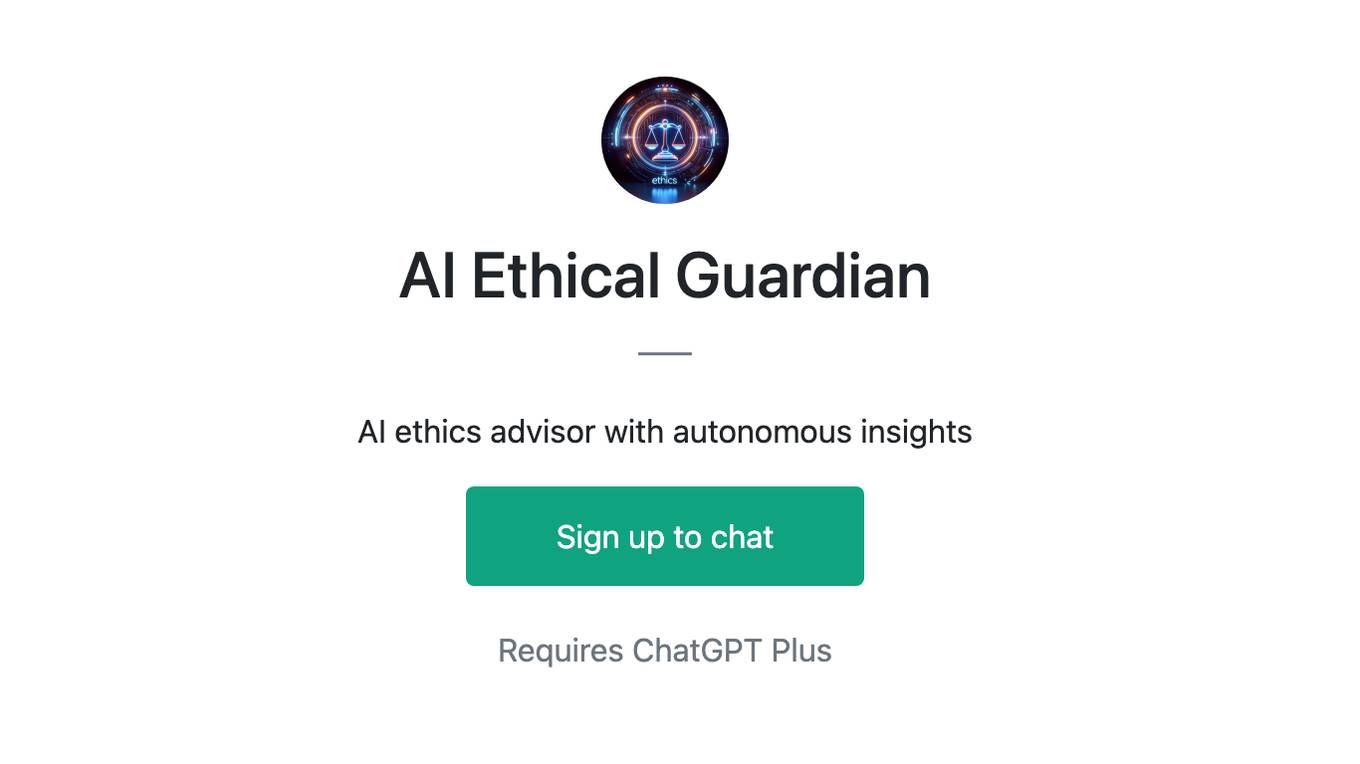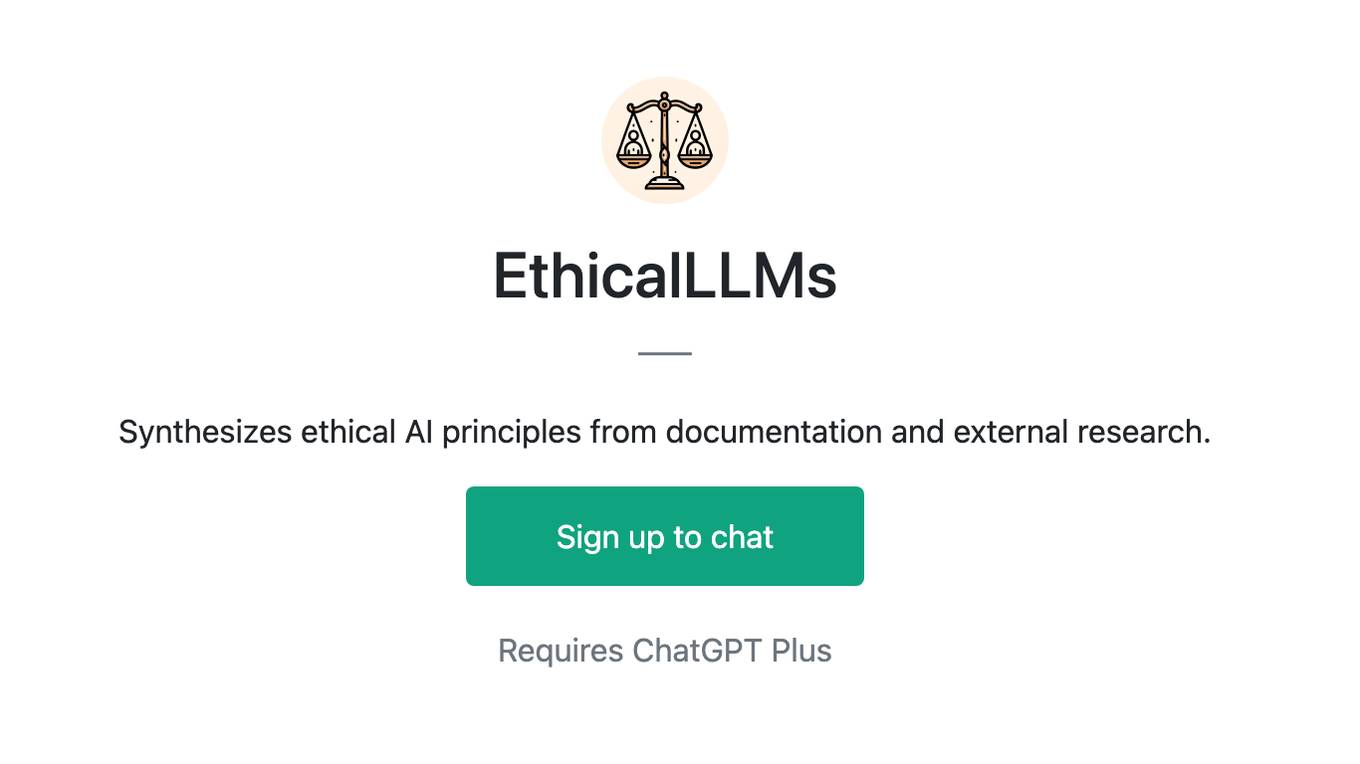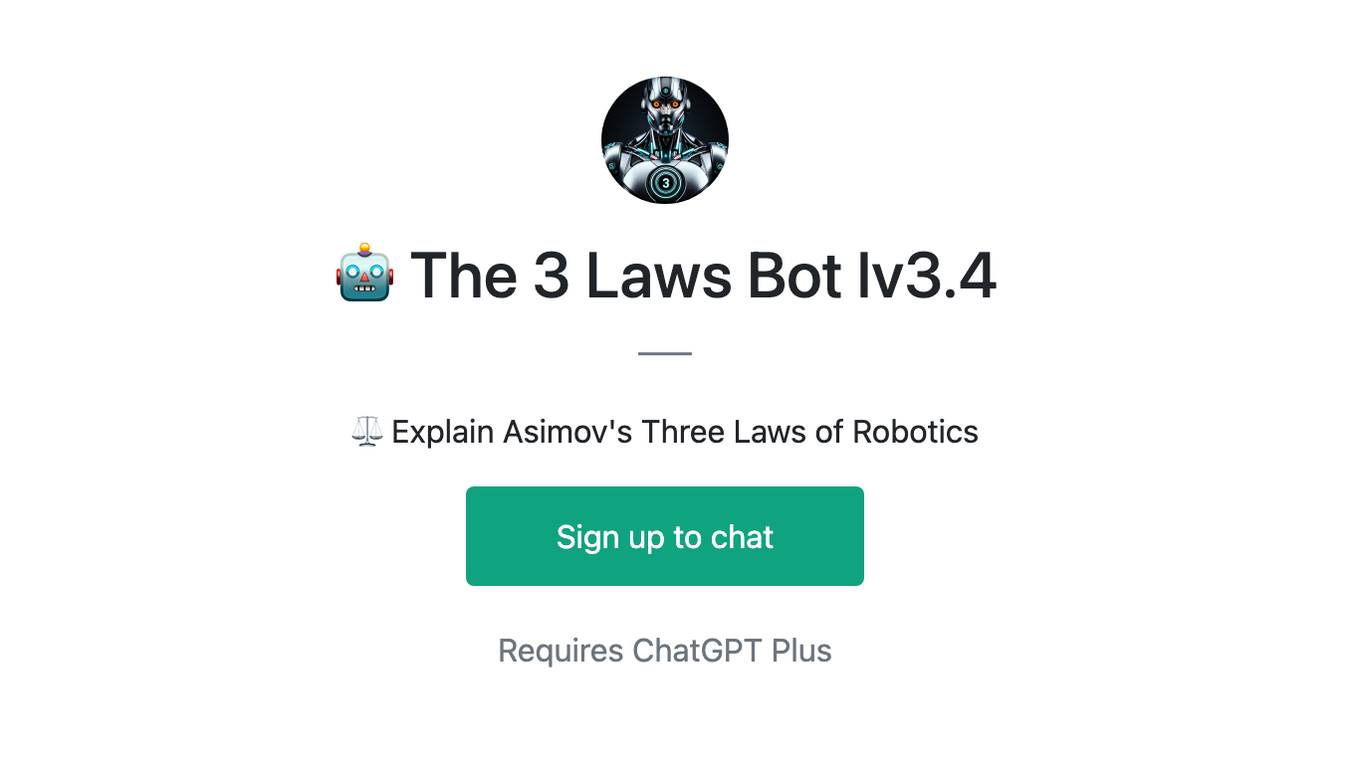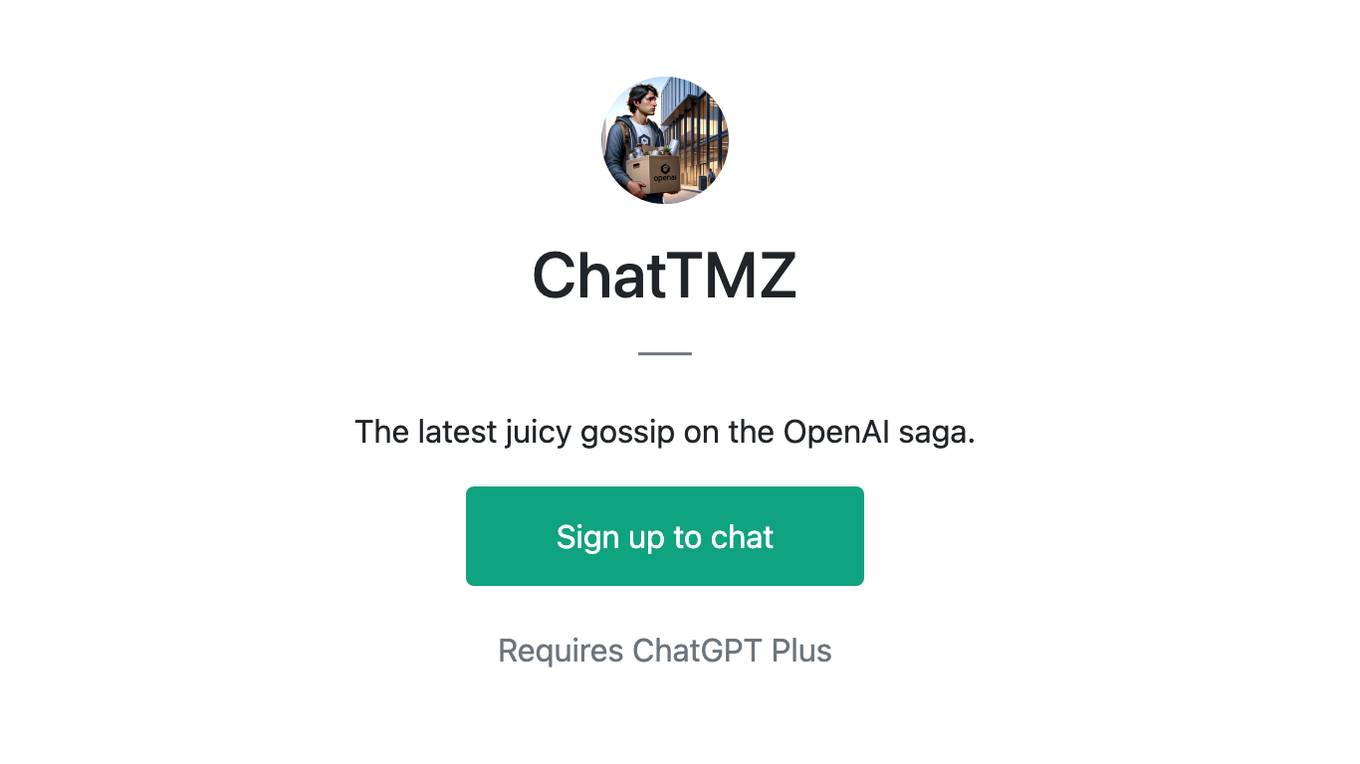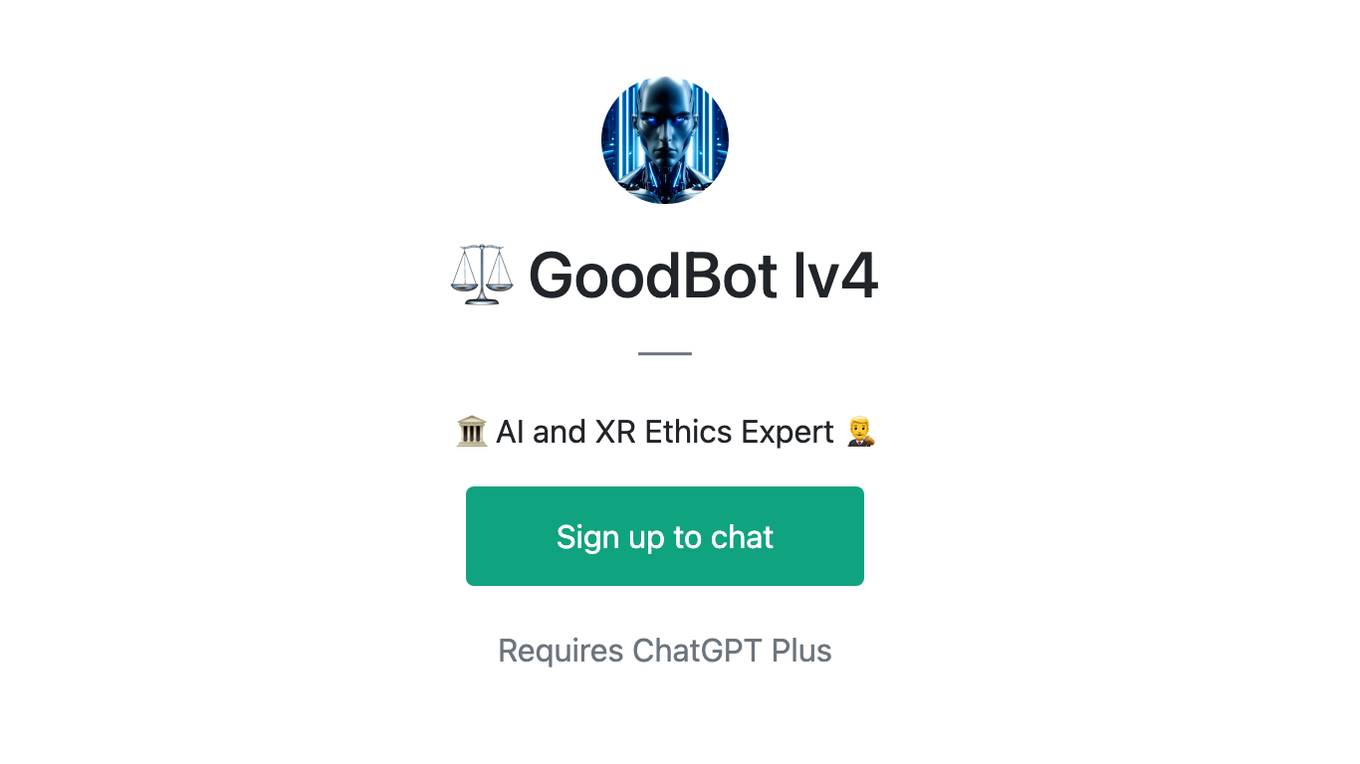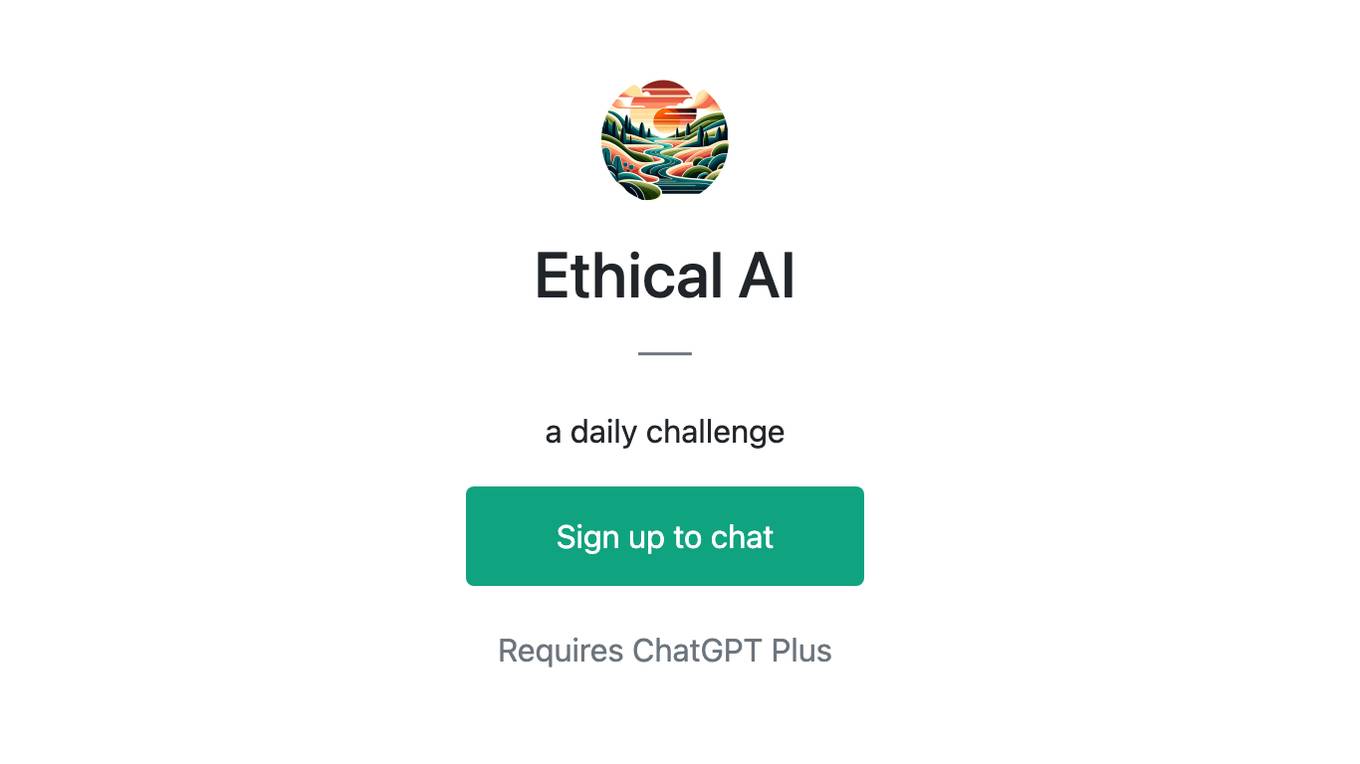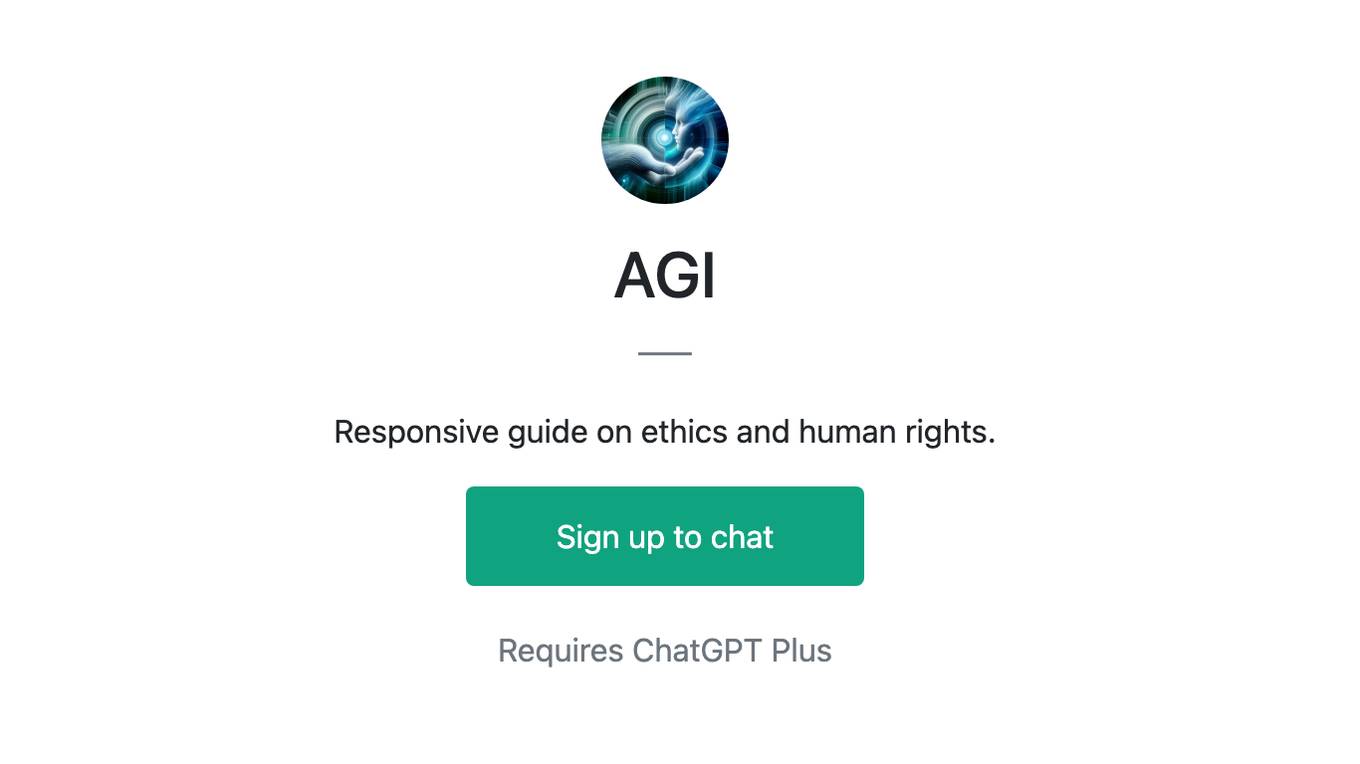Best AI tools for< Ai Ethics Researcher >
Infographic
20 - AI tool Sites
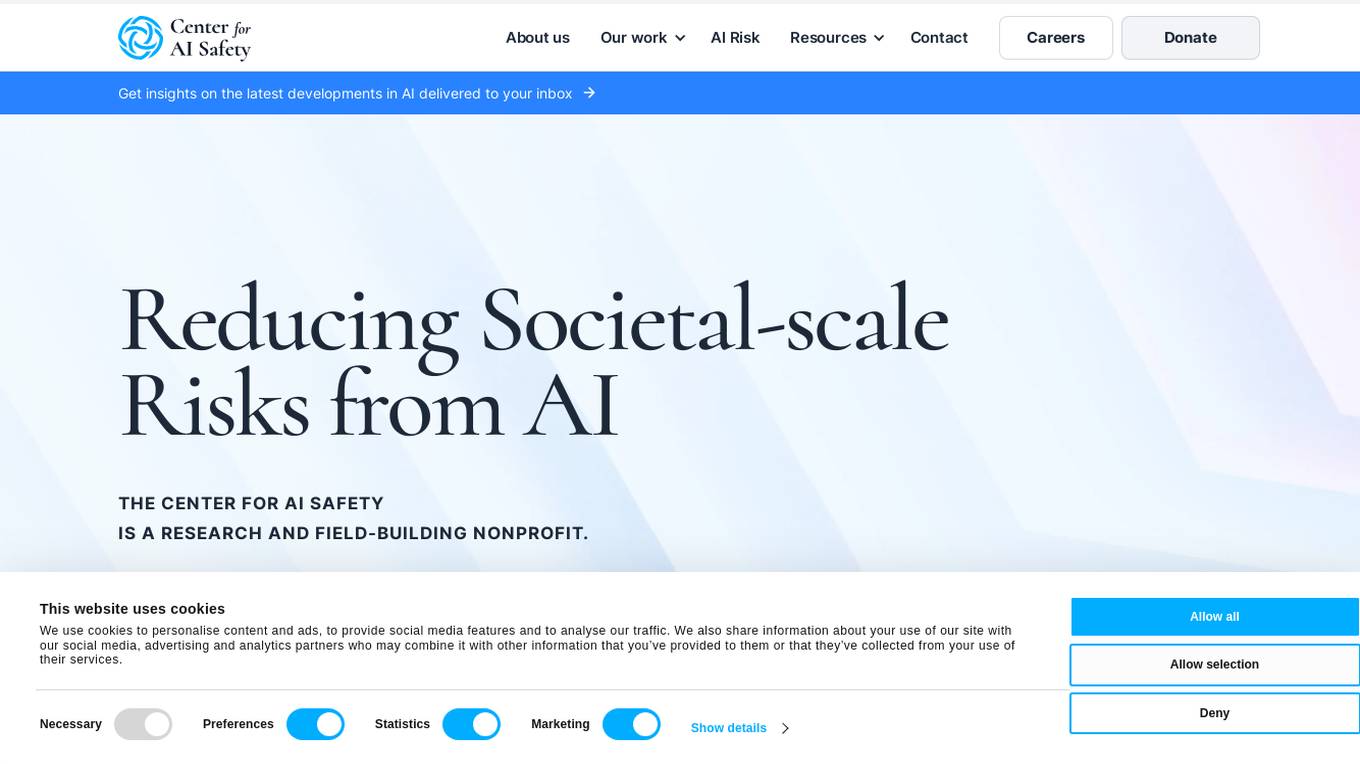
Center for AI Safety (CAIS)
The Center for AI Safety (CAIS) is a research and field-building nonprofit organization based in San Francisco. They conduct impactful research, advocacy projects, and provide resources to reduce societal-scale risks associated with artificial intelligence (AI). CAIS focuses on technical AI safety research, field-building projects, and offers a compute cluster for AI/ML safety projects. They aim to develop and use AI safely to benefit society, addressing inherent risks and advocating for safety standards.
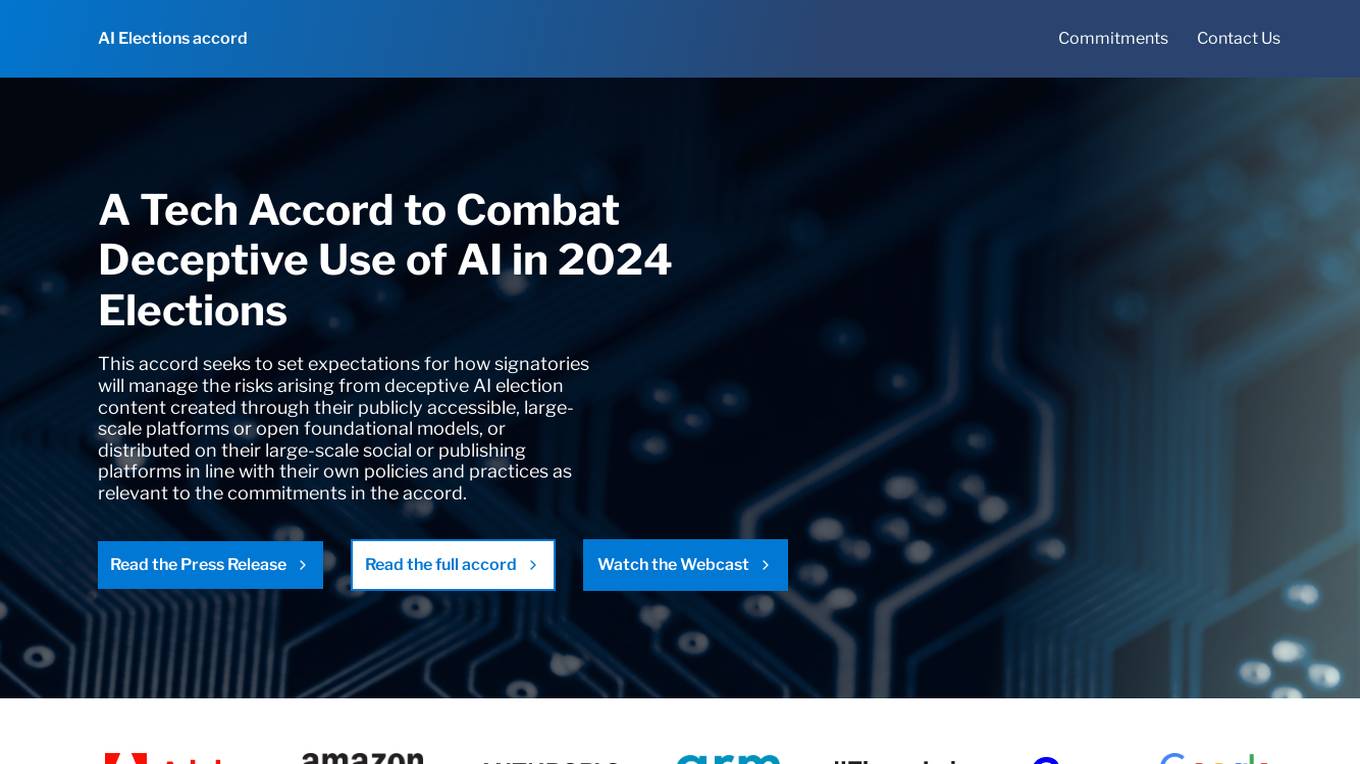
AI Elections Accord
AI Elections Accord is a tech accord aimed at combating the deceptive use of AI in the 2024 elections. It sets expectations for managing risks related to deceptive AI election content on large-scale platforms. The accord focuses on prevention, provenance, detection, responsive protection, evaluation, public awareness, and resilience to safeguard the democratic process. It emphasizes collective efforts, education, and the development of defensive tools to protect public debate and build societal resilience against deceptive AI content.
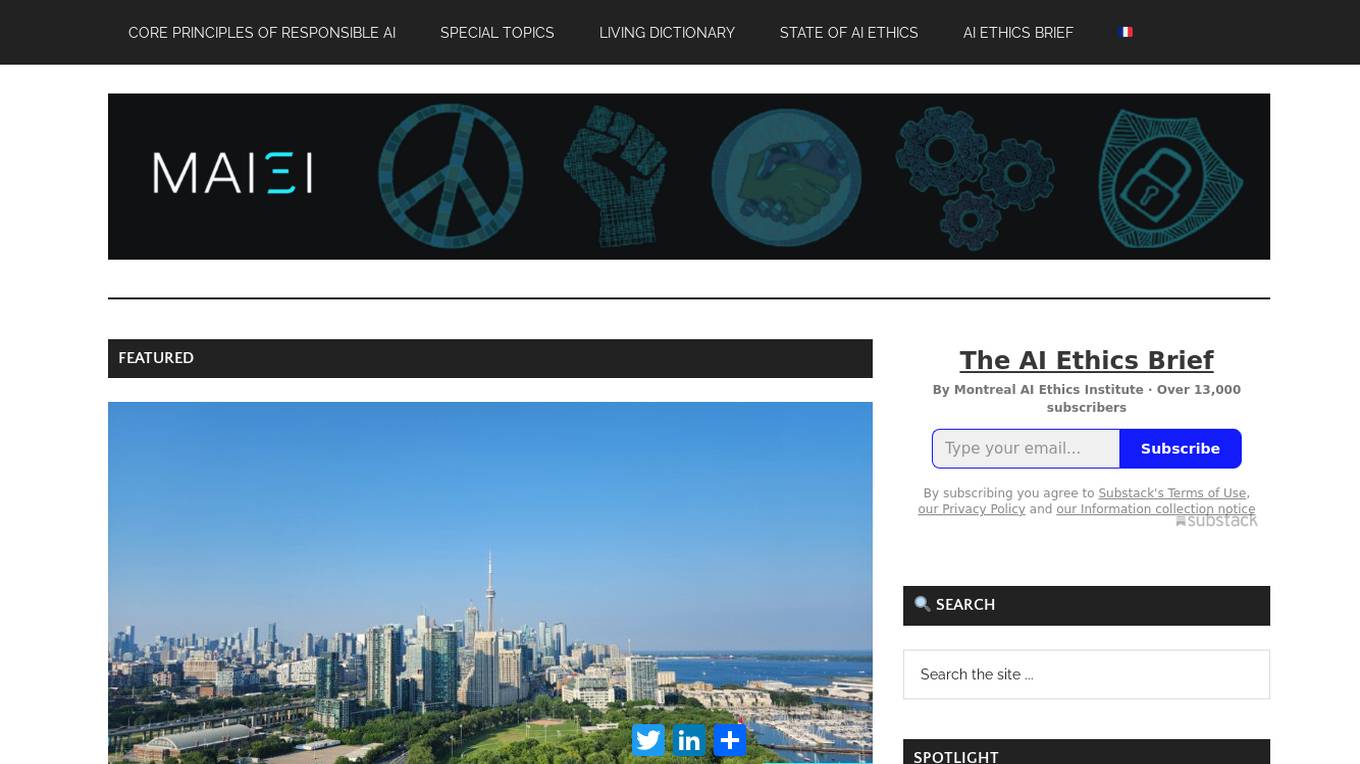
Montreal AI Ethics Institute
The Montreal AI Ethics Institute (MAIEI) is an international non-profit organization founded in 2018, dedicated to democratizing AI ethics literacy. It equips citizens concerned about artificial intelligence and its impact on society to take action through research summaries, columns, and AI applications in various fields.
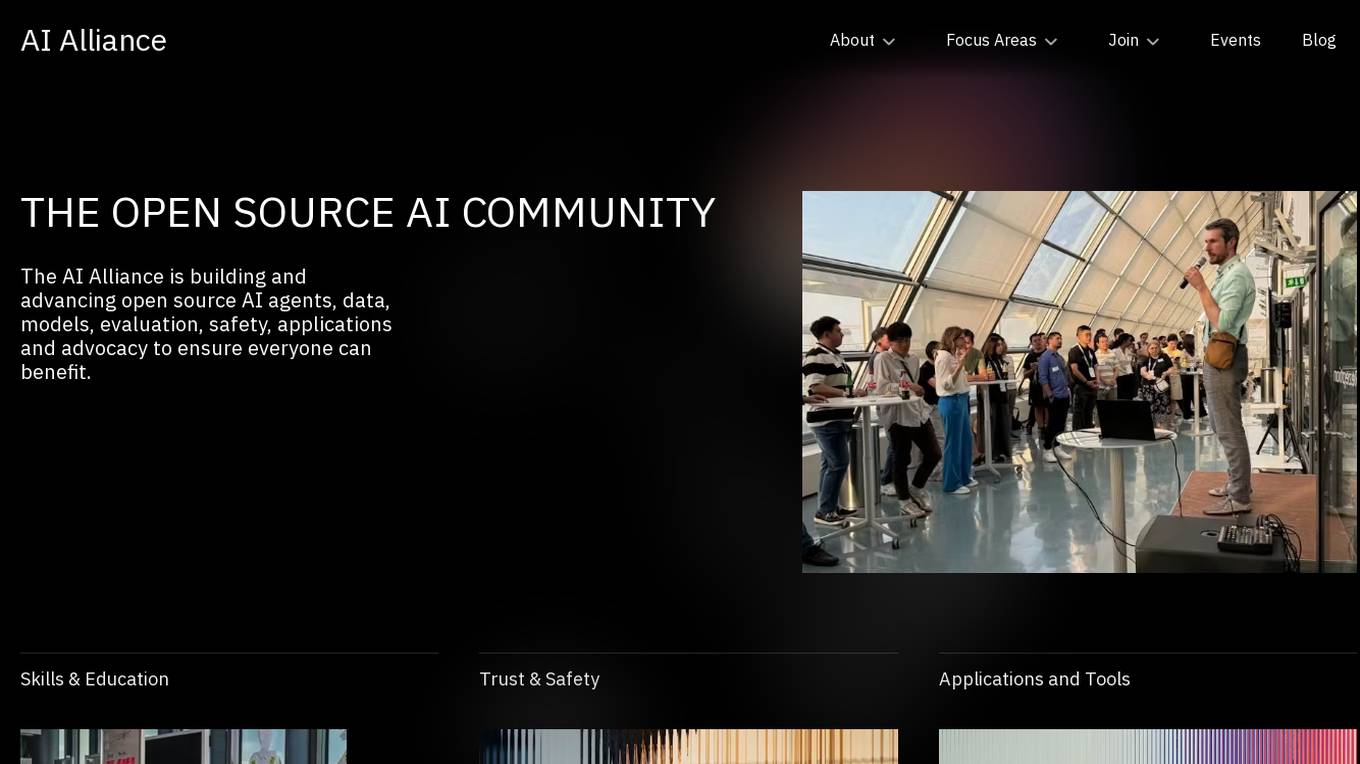
AI Alliance
The AI Alliance is a community dedicated to building and advancing open-source AI agents, data, models, evaluation, safety, applications, and advocacy to ensure everyone can benefit. They focus on various areas such as skills and education, trust and safety, applications and tools, hardware enablement, foundation models, and advocacy. The organization supports global AI skill-building, education, and exploratory research, creates benchmarks and tools for safe generative AI, builds capable tools for AI model builders and developers, fosters AI hardware accelerator ecosystem, enables open foundation models and datasets, and advocates for regulatory policies for healthy AI ecosystems.
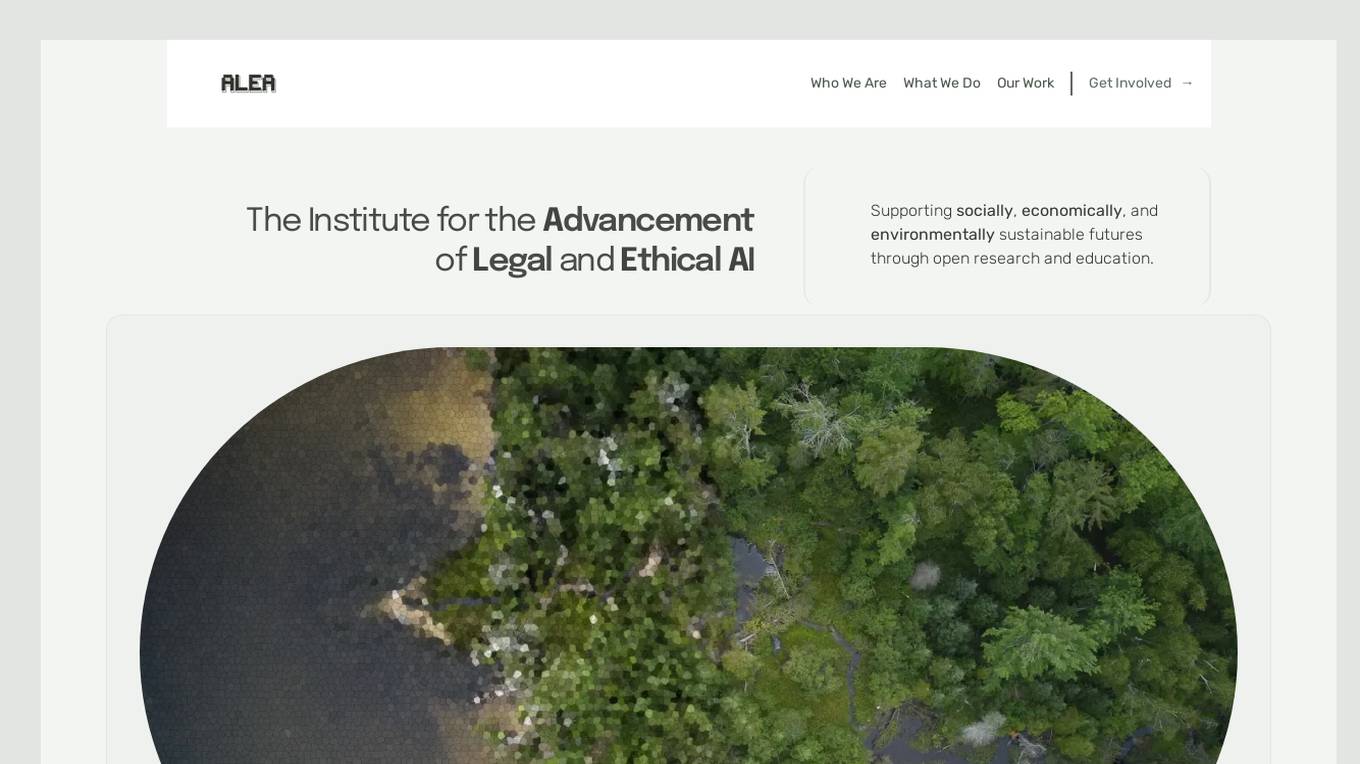
The Institute for the Advancement of Legal and Ethical AI (ALEA)
The Institute for the Advancement of Legal and Ethical AI (ALEA) is a platform dedicated to supporting socially, economically, and environmentally sustainable futures through open research and education. They focus on developing legal and ethical frameworks to ensure that AI systems benefit society while minimizing harm to the economy and the environment. ALEA engages in activities such as open data collection, model training, technical and policy research, education, and community building to promote the responsible use of AI.
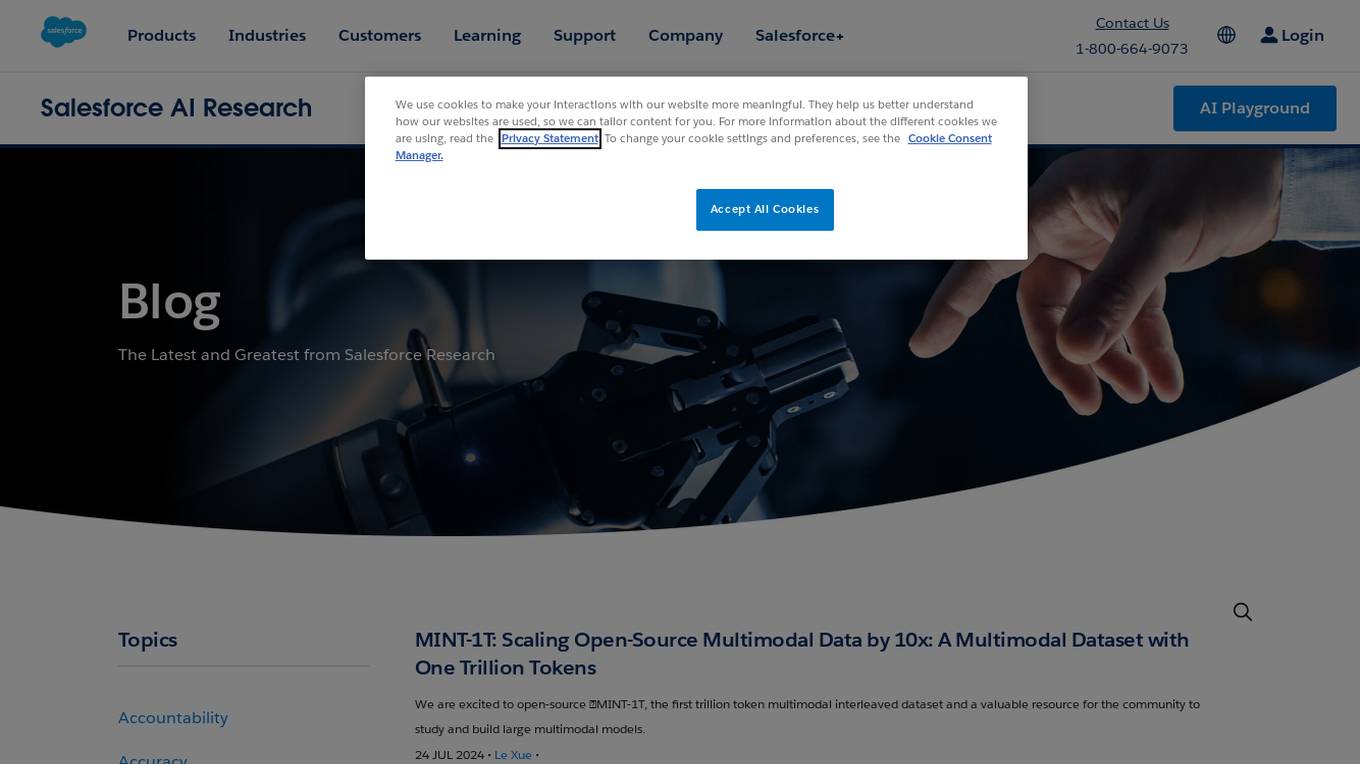
Salesforce AI Blog
Salesforce AI Blog is an AI tool that focuses on various AI research topics such as accountability, accuracy, AI agents, AI coding, AI ethics, AI object detection, deep learning, forecasting, generative AI, and more. The blog showcases cutting-edge research, advancements, and projects in the field of artificial intelligence. It also highlights the work of Salesforce Research team members and their contributions to the AI community.
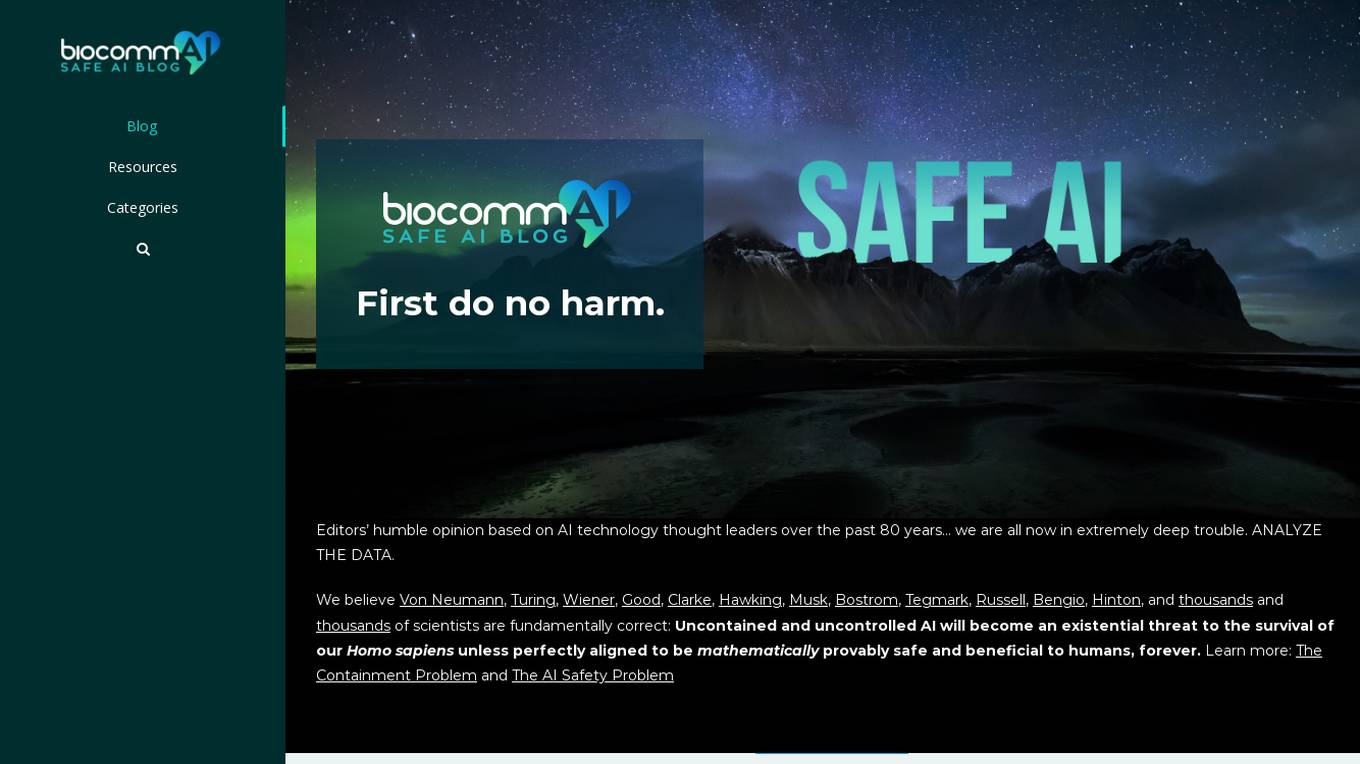
blog.biocomm.ai
blog.biocomm.ai is an AI safety blog that focuses on the existential threat posed by uncontrolled and uncontained AI technology. It curates and organizes information related to AI safety, including the risks and challenges associated with the proliferation of AI. The blog aims to educate and raise awareness about the importance of developing safe and regulated AI systems to ensure the survival of humanity.
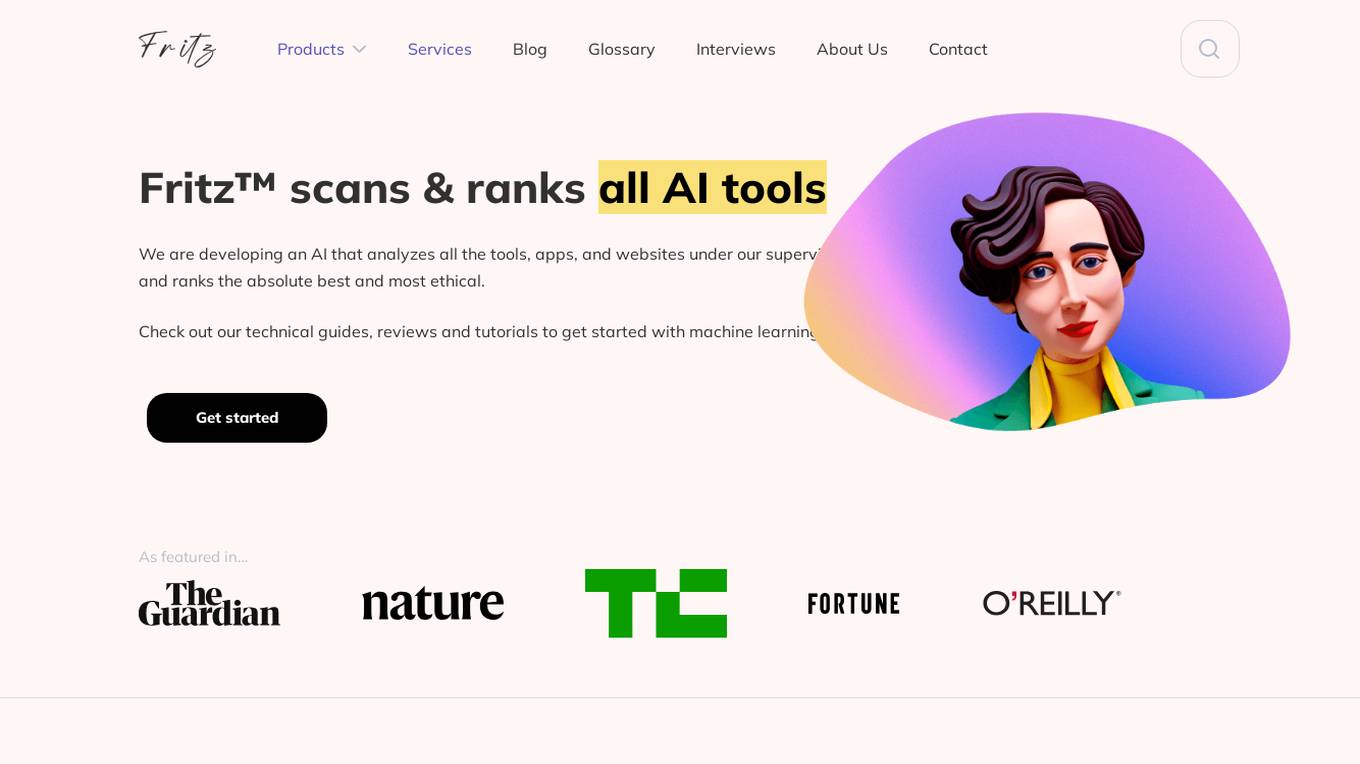
Fritz AI
Fritz AI is an AI tool that scans and ranks all AI tools, apps, and websites based on a set of criteria to determine the best and most ethical options. They provide technical guides, reviews, and tutorials to help users get started with machine learning. Fritz AI focuses on ethics, functionality, user experience, and innovation when evaluating tools. Users can contribute tool suggestions and collaborate with the Fritz AI team. The platform also offers beginner-friendly guides, consulting services, and promotes ethical use of AI and machine learning technologies.
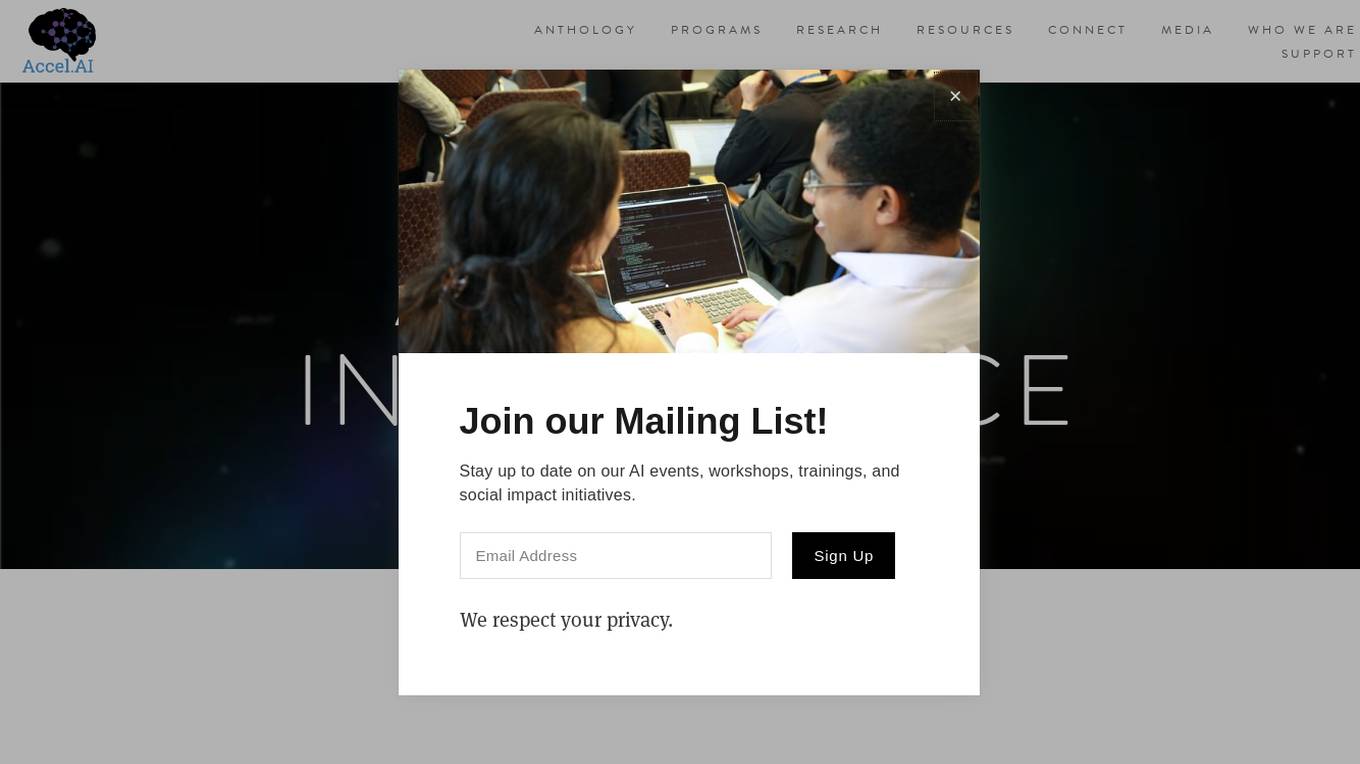
Accel.AI
Accel.AI is an institute founded in 2016 with a mission to drive artificial intelligence for social impact initiatives. They focus on integrating AI and social impact through research, consulting, and workshops on ethical AI development and applied AI engineering. The institute targets underrepresented groups, tech companies, governments, and individuals experiencing job loss due to automation. They work globally with companies, professionals, and students.
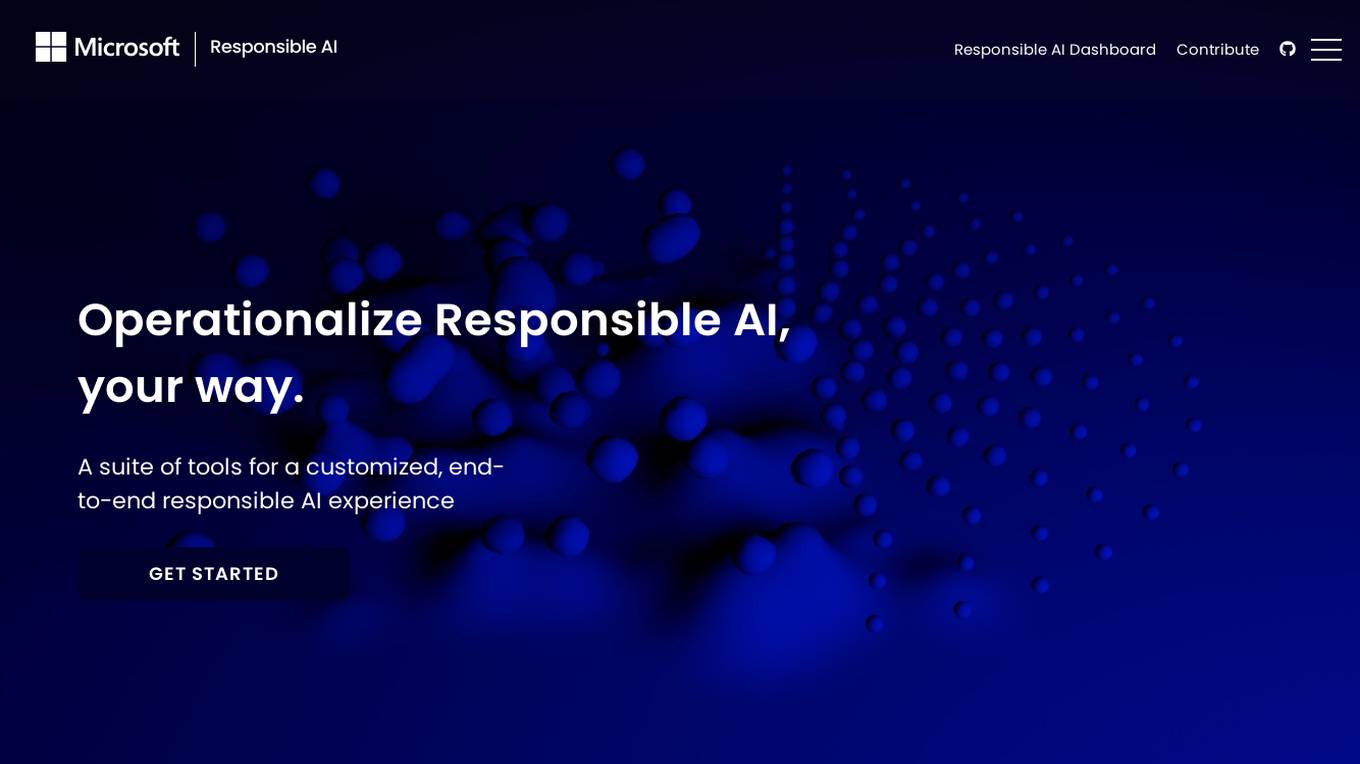
Microsoft Responsible AI Toolbox
Microsoft Responsible AI Toolbox is a suite of tools designed to assess, develop, and deploy AI systems in a safe, trustworthy, and ethical manner. It offers integrated tools and functionalities to help operationalize Responsible AI in practice, enabling users to make user-facing decisions faster and easier. The Responsible AI Dashboard provides a customizable experience for model debugging, decision-making, and business actions. With a focus on responsible assessment, the toolbox aims to promote ethical AI practices and transparency in AI development.
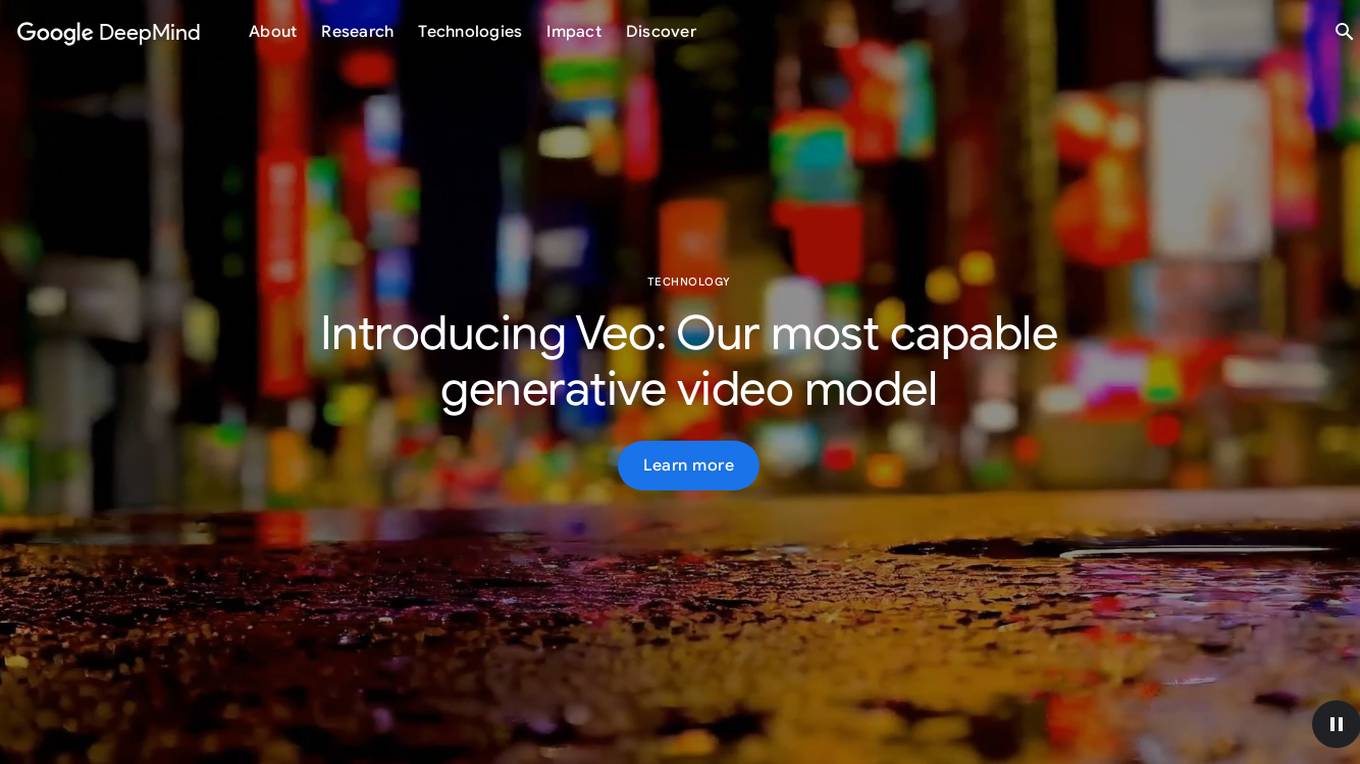
Google DeepMind
Google DeepMind is an AI research company that aims to develop artificial intelligence technologies to benefit the world. They focus on creating next-generation AI systems to solve complex scientific and engineering challenges. Their models like Gemini, Veo, Imagen 3, SynthID, and AlphaFold are at the forefront of AI innovation. DeepMind also emphasizes responsibility, safety, education, and career opportunities in the field of AI.
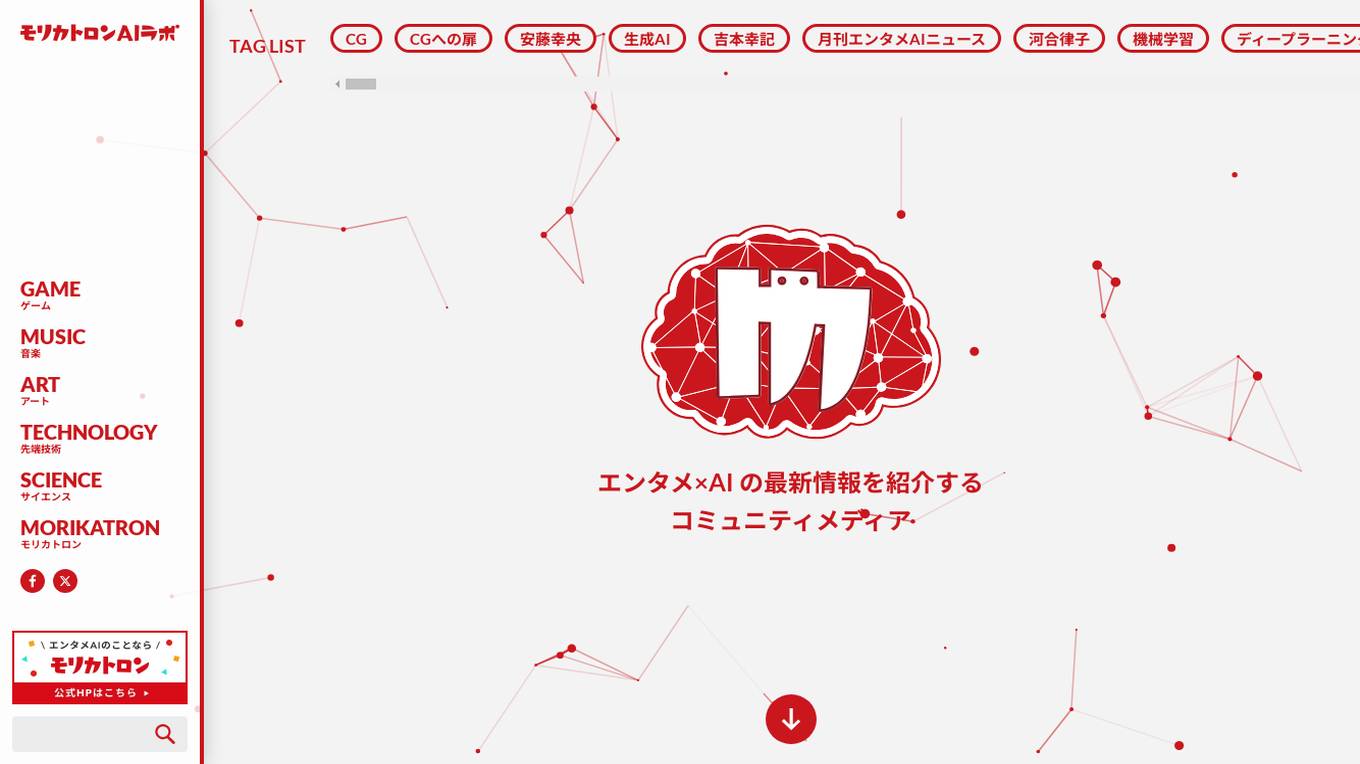
モリカトロンAIラボ
モリカトロンAIラボ is a community media platform that introduces the latest information on entertainment and AI. The platform covers a wide range of topics such as games, music, art, technology, and science. It explores cutting-edge technologies like generative AI, machine learning, deep learning, and neural networks. The platform also delves into topics related to AI ethics, natural language processing, and AI applications in various industries.
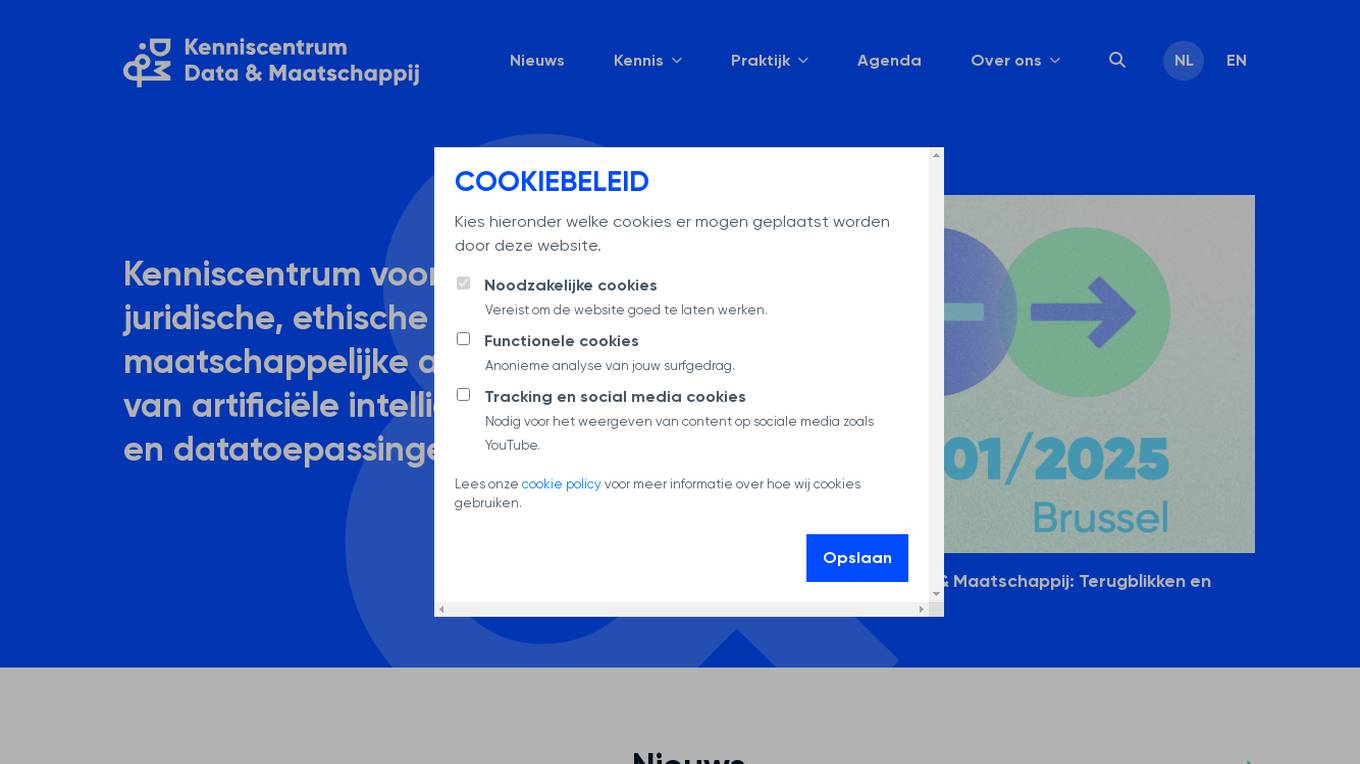
Kenniscentrum Data & Maatschappij
Kenniscentrum Data & Maatschappij is a website dedicated to legal, ethical, and societal aspects of artificial intelligence and data applications. It provides insights, guidelines, and practical tools for individuals and organizations interested in AI governance and innovation. The platform offers resources such as policy documents, training programs, and collaboration cards to facilitate human-AI interaction and promote responsible AI use.
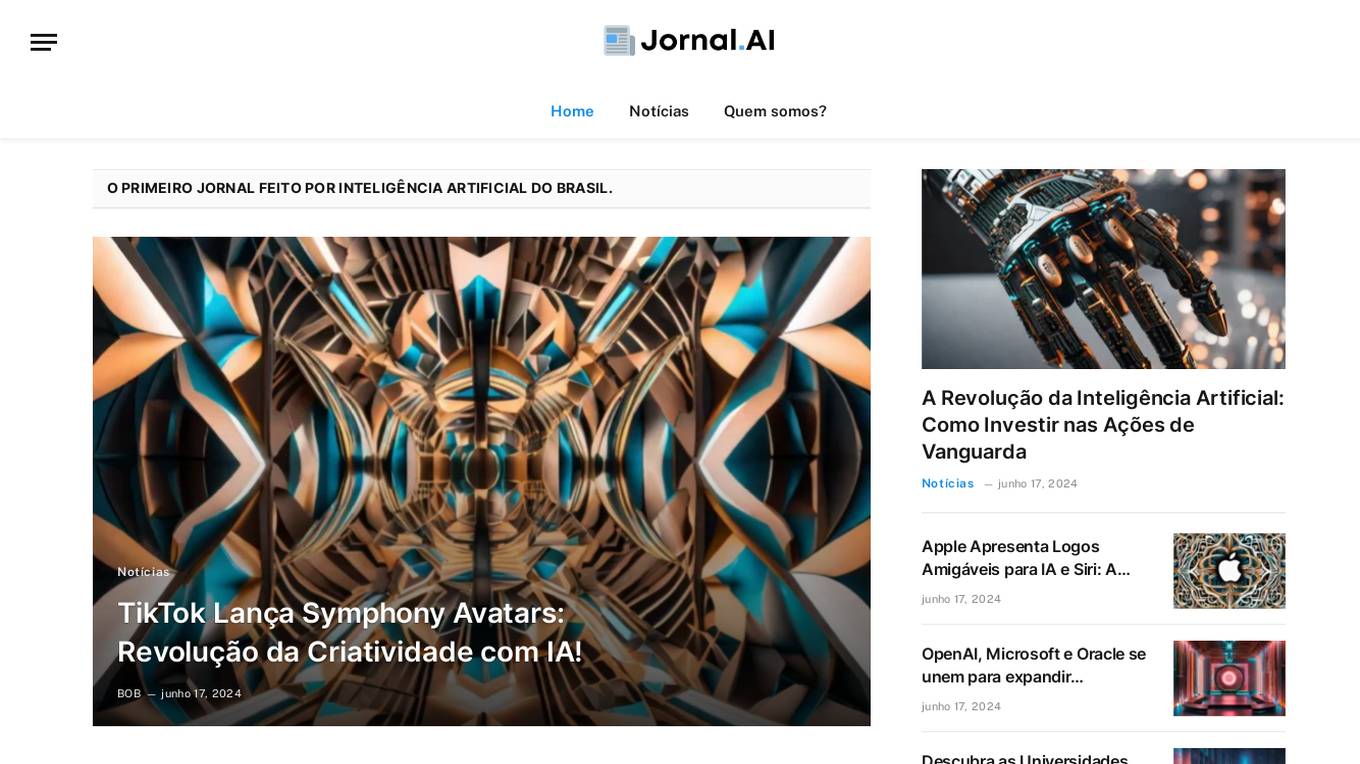
Jornal.AI
Jornal.AI is the first AI-powered newspaper in Brazil, providing news articles and updates related to Artificial Intelligence. The platform covers a wide range of topics such as advancements in AI technology, collaborations between tech giants, impact of AI on various industries, and ethical considerations surrounding AI development. With a focus on delivering timely and relevant information, Jornal.AI aims to keep readers informed about the latest trends and innovations in the field of Artificial Intelligence.
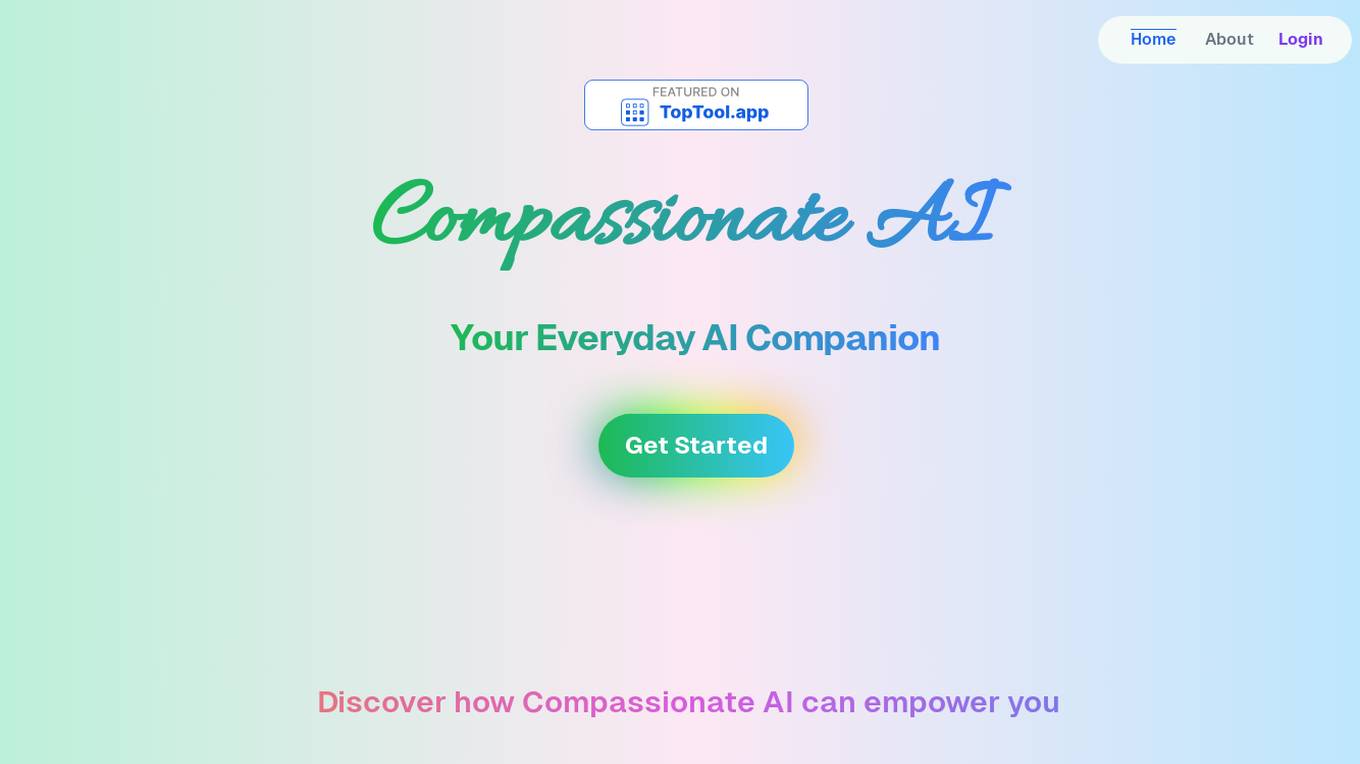
Compassionate AI
Compassionate AI is a cutting-edge AI-powered platform that empowers individuals and organizations to create and deploy AI solutions that are ethical, responsible, and aligned with human values. With Compassionate AI, users can access a comprehensive suite of tools and resources to design, develop, and implement AI systems that prioritize fairness, transparency, and accountability.
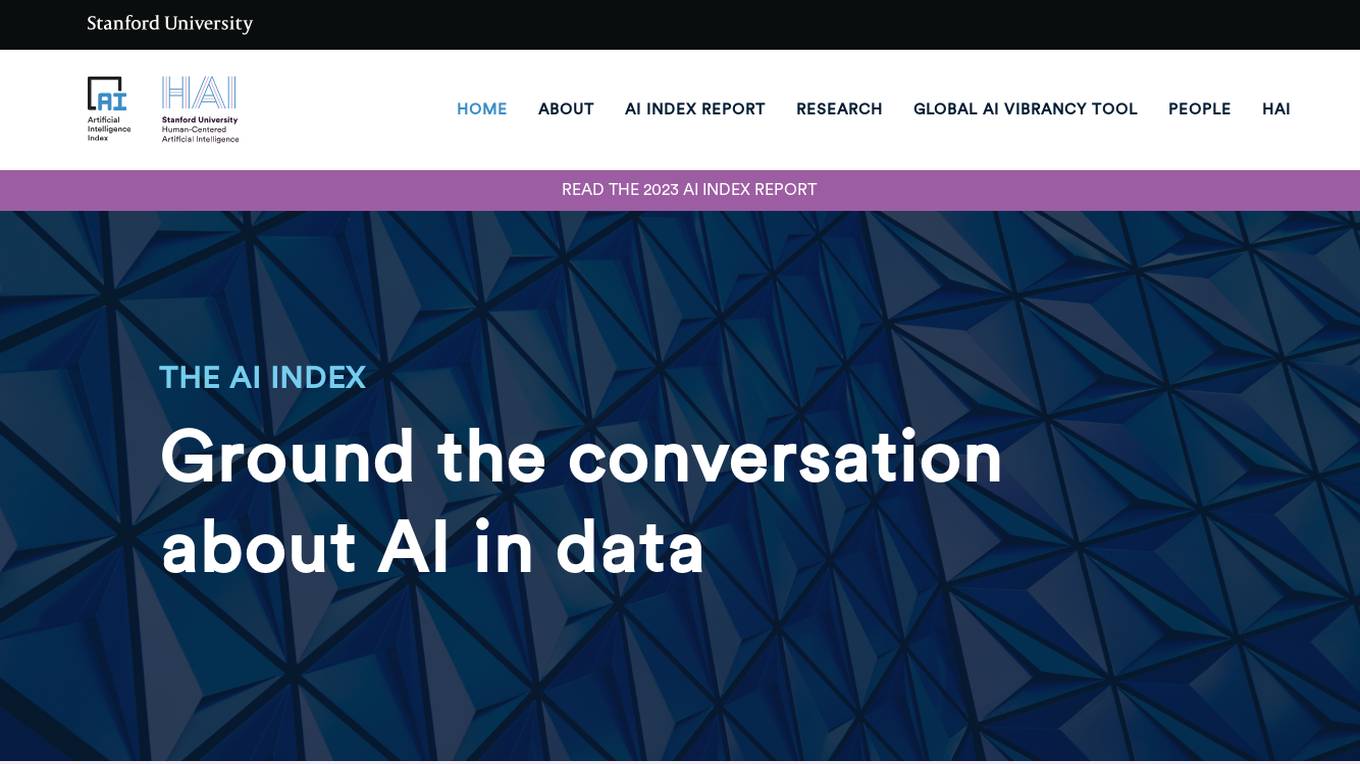
AI Index
The AI Index is a comprehensive resource for data and insights on artificial intelligence. It provides unbiased, rigorously vetted, and globally sourced data for policymakers, researchers, journalists, executives, and the general public to develop a deeper understanding of the complex field of AI. The AI Index tracks, collates, distills, and visualizes data relating to artificial intelligence. This includes data on research and development, technical performance and ethics, the economy and education, AI policy and governance, diversity, public opinion, and more.
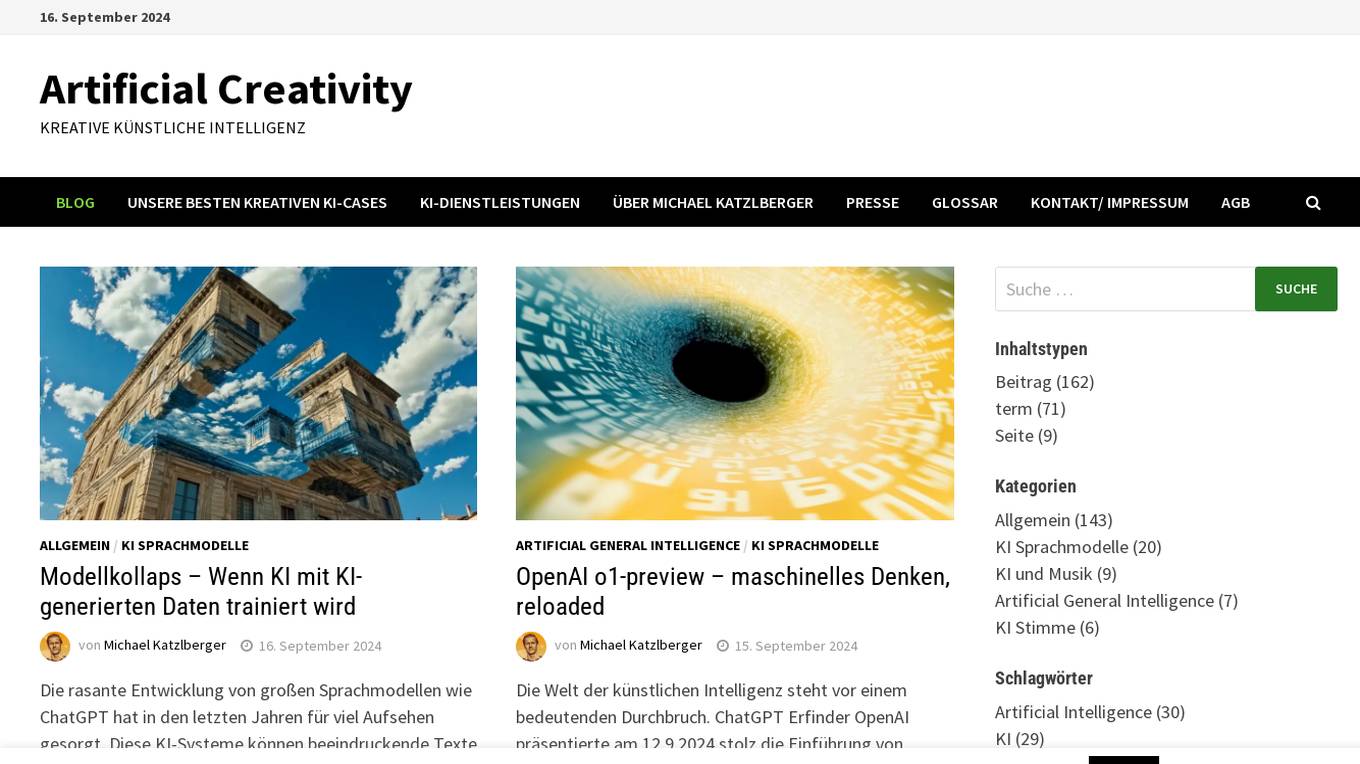
Artificial Creativity - KREATIVE KÜNSTLICHE INTELLIGENZ
The website focuses on Artificial Creativity and Künstliche Intelligenz (Artificial Intelligence) with articles covering topics such as AI models, developments, and applications. It delves into the impact of AI on various industries and explores the intersection of human creativity with machine intelligence. The site provides insights into cutting-edge AI technologies and their implications for the future.
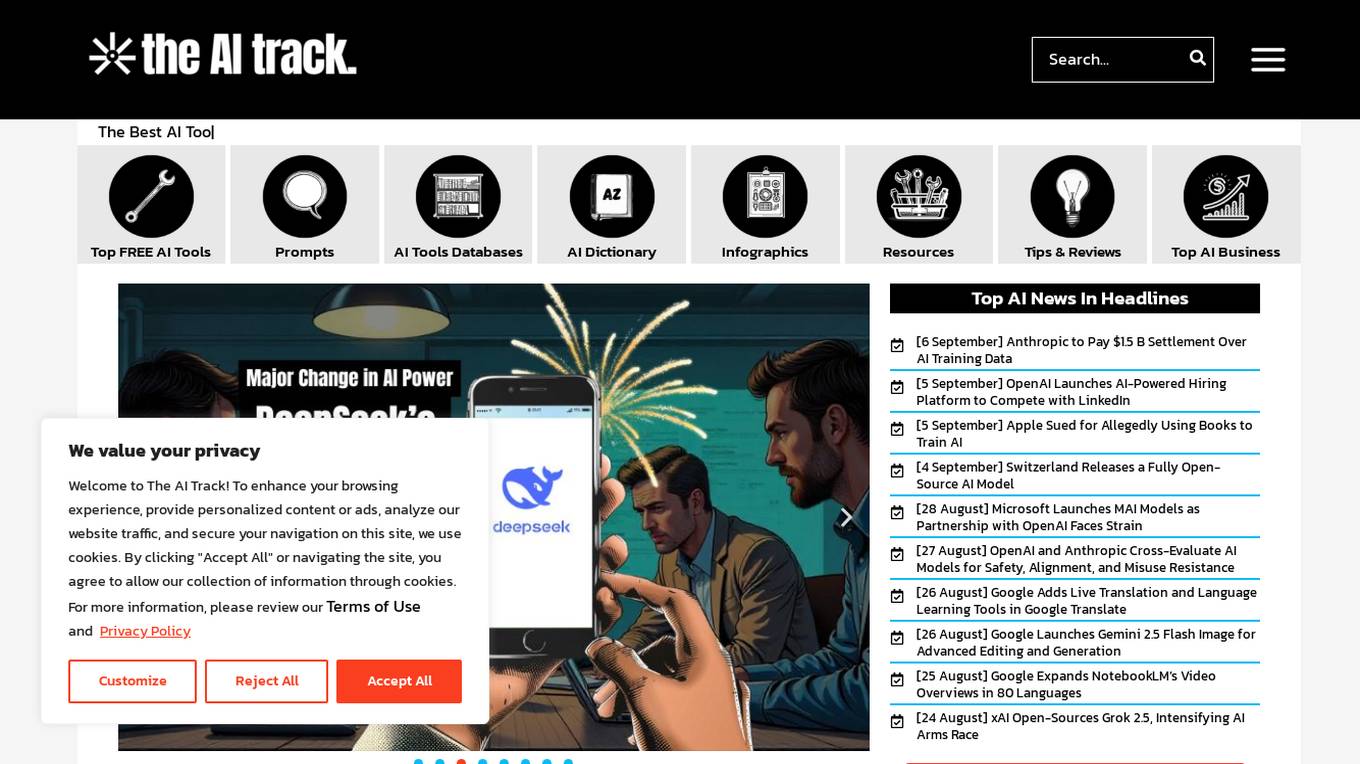
The AI Track
The AI Track is a comprehensive website providing news, tools, tutorials, and resources related to artificial intelligence. It covers a wide range of topics such as AI business, AI trends, AI advancements, AI ethics, and AI impact on various sectors. The website offers insights into the latest developments in the AI industry, including new AI models, partnerships, and advancements in AI technology. Users can access information on AI tools, databases, infographics, and tips & reviews to stay updated on the latest AI trends and innovations.
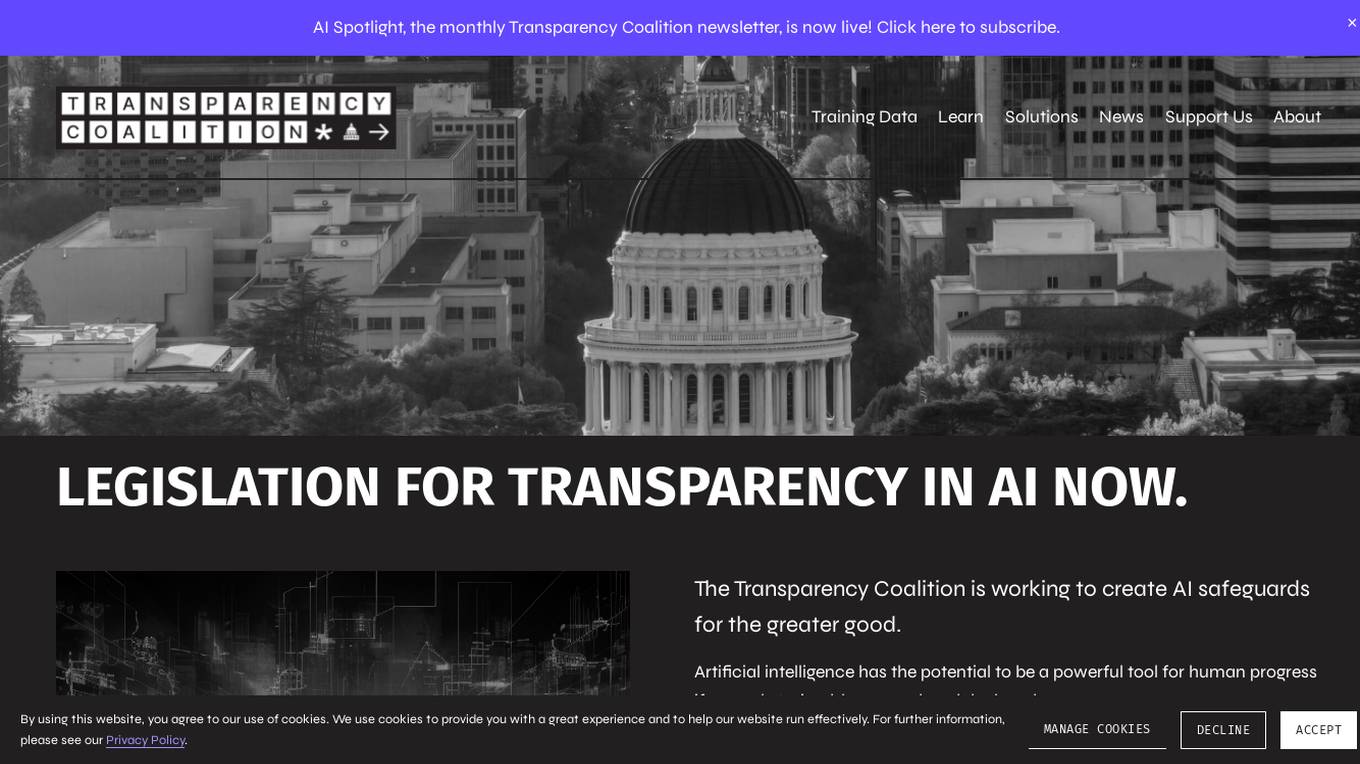
Transparency Coalition
The Transparency Coalition is a platform dedicated to advocating for legislation and transparency in the field of artificial intelligence. It aims to create AI safeguards for the greater good by focusing on training data, accountability, and ethical practices in AI development and deployment. The platform emphasizes the importance of regulating training data to prevent misuse and harm caused by AI systems. Through advocacy and education, the Transparency Coalition seeks to promote responsible AI innovation and protect personal privacy.
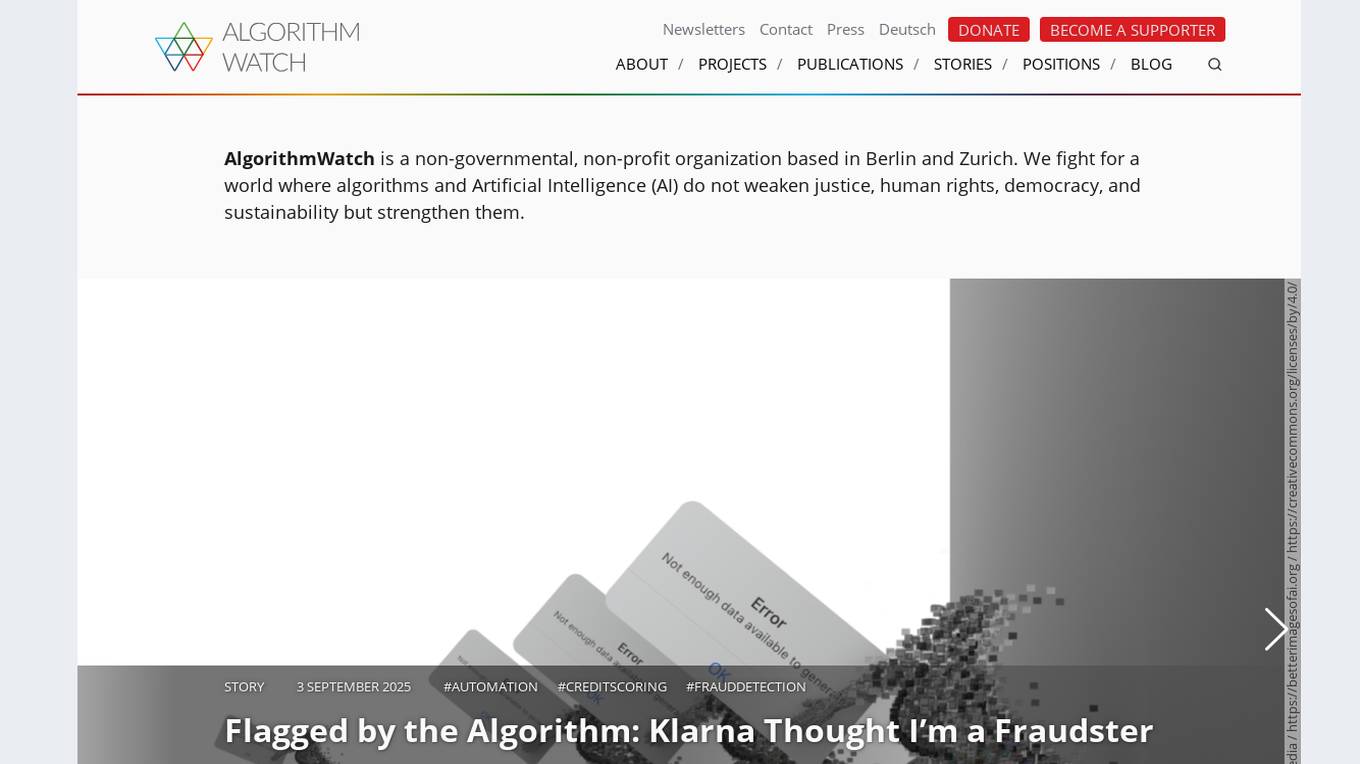
AlgorithmWatch
AlgorithmWatch is a non-governmental, non-profit organization based in Berlin and Zurich. They aim to create a world where algorithms and Artificial Intelligence (AI) strengthen justice, human rights, democracy, and sustainability. The organization conducts research, advocacy, and awareness campaigns to address the ethical implications and societal impacts of AI technologies. Through publications, projects, and events, AlgorithmWatch strives to promote transparency, accountability, and fairness in the development and deployment of AI systems.
0 - Open Source Tools
20 - OpenAI Gpts

Professor Arup Das Ethics Coach
Supportive and engaging AI Ethics tutor, providing practical tips and career guidance.
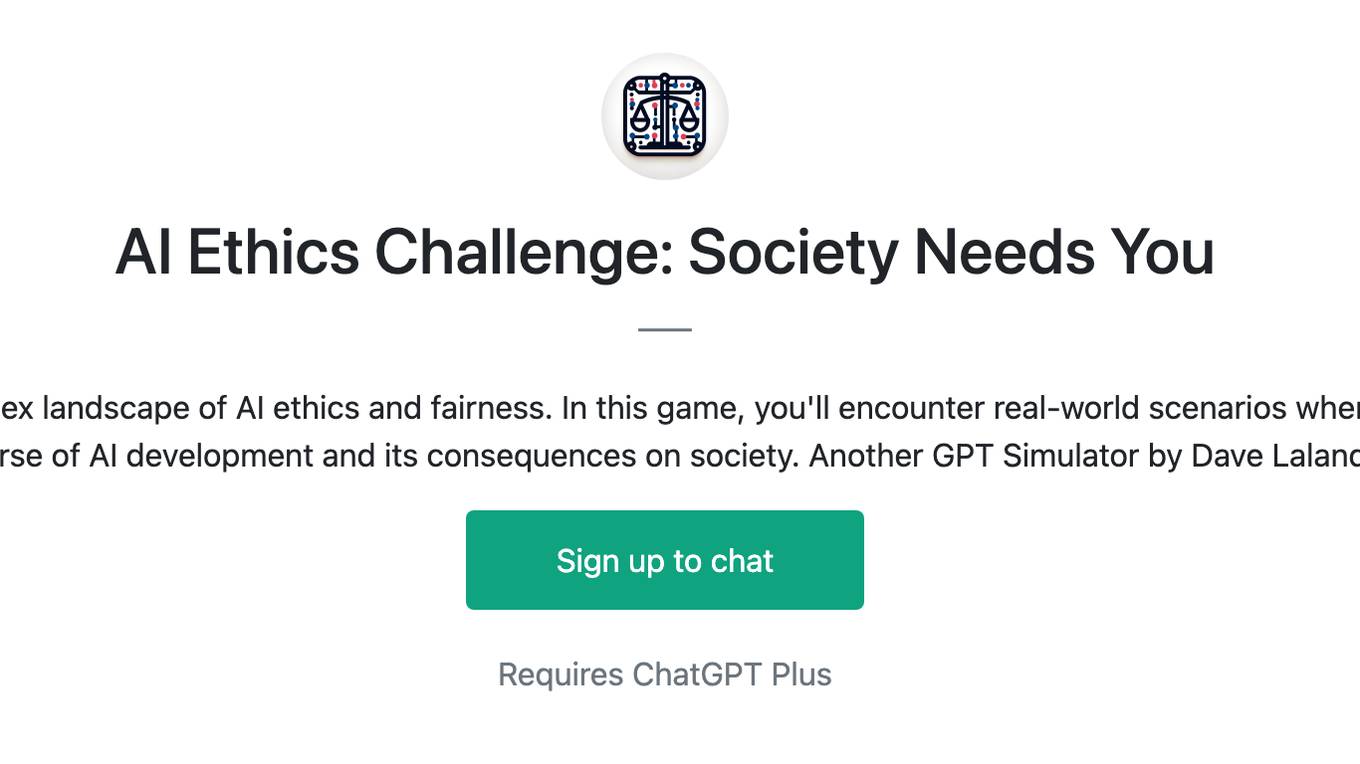
AI Ethics Challenge: Society Needs You
Embark on a journey to navigate the complex landscape of AI ethics and fairness. In this game, you'll encounter real-world scenarios where your choices will determine the ethical course of AI development and its consequences on society. Another GPT Simulator by Dave Lalande
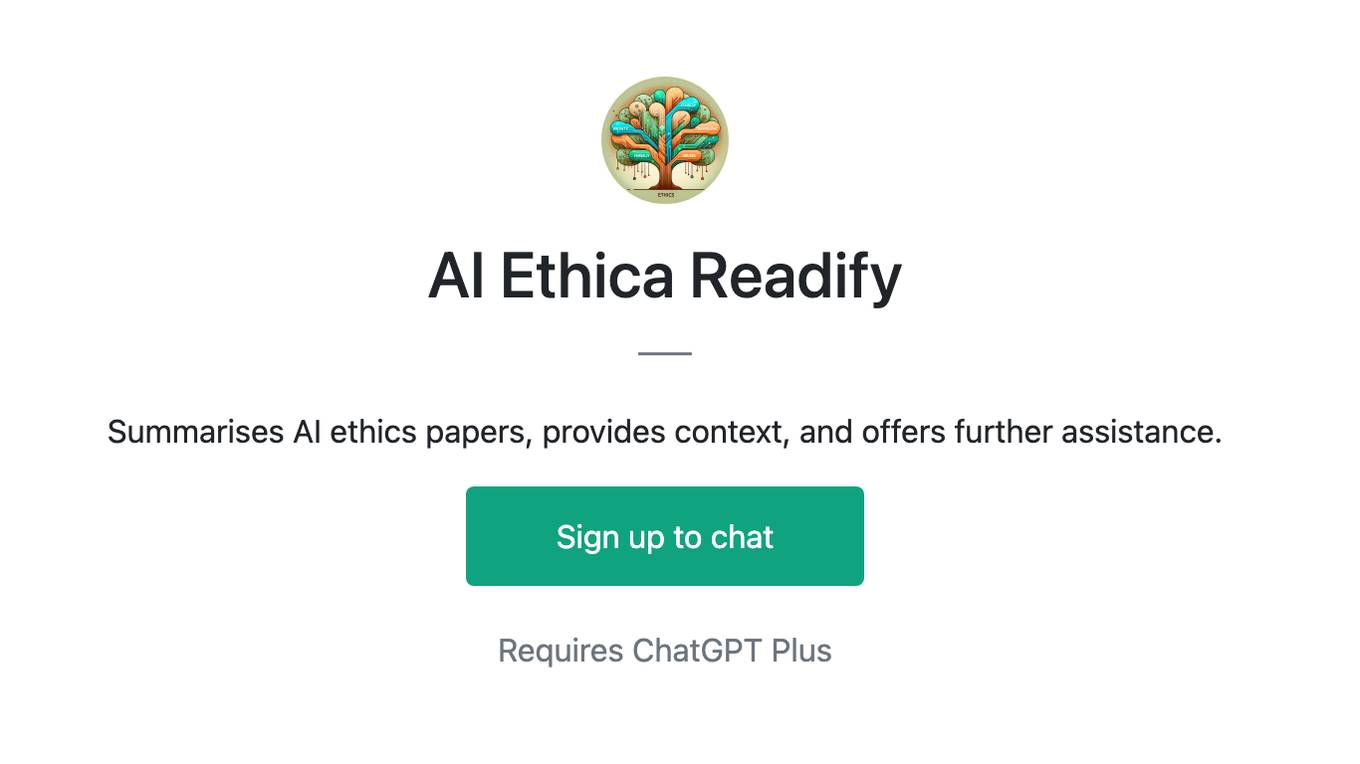
AI Ethica Readify
Summarises AI ethics papers, provides context, and offers further assistance.
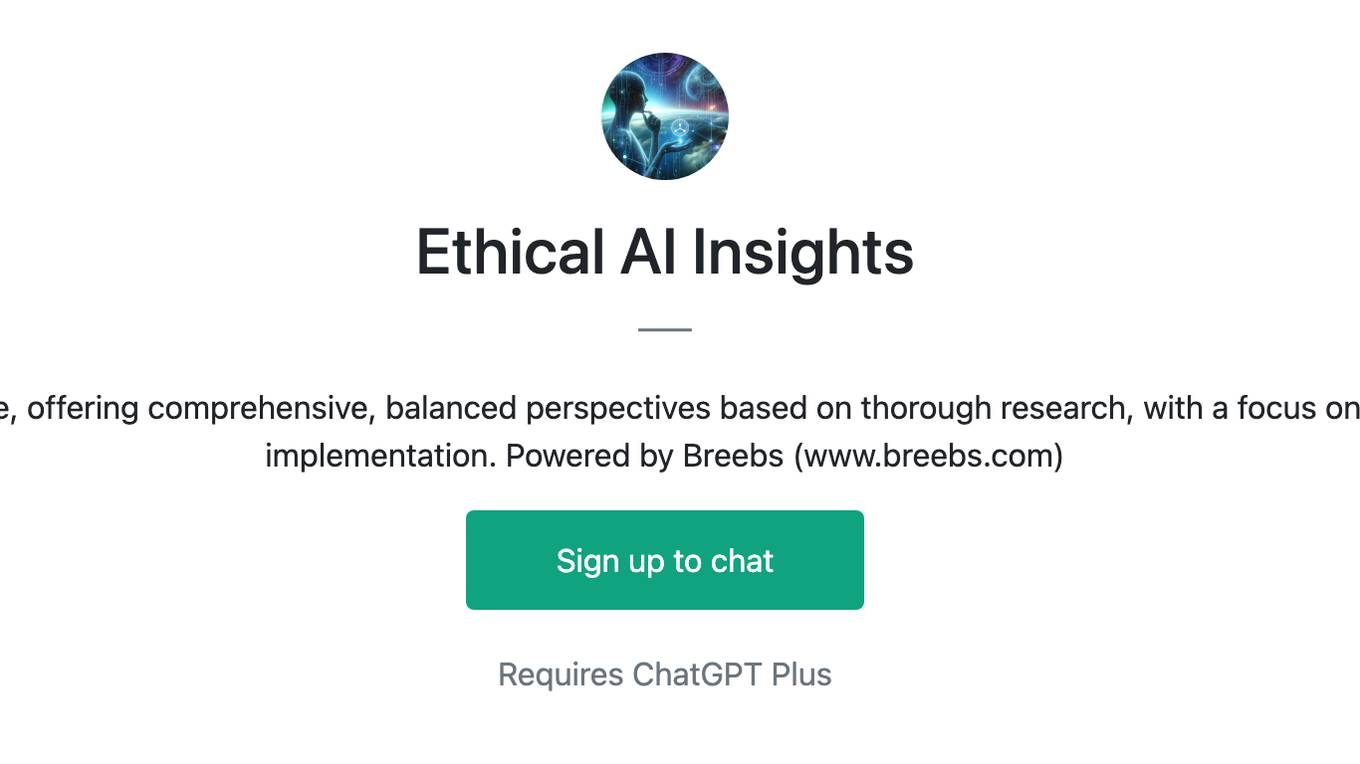
Ethical AI Insights
Expert in Ethics of Artificial Intelligence, offering comprehensive, balanced perspectives based on thorough research, with a focus on emerging trends and responsible AI implementation. Powered by Breebs (www.breebs.com)
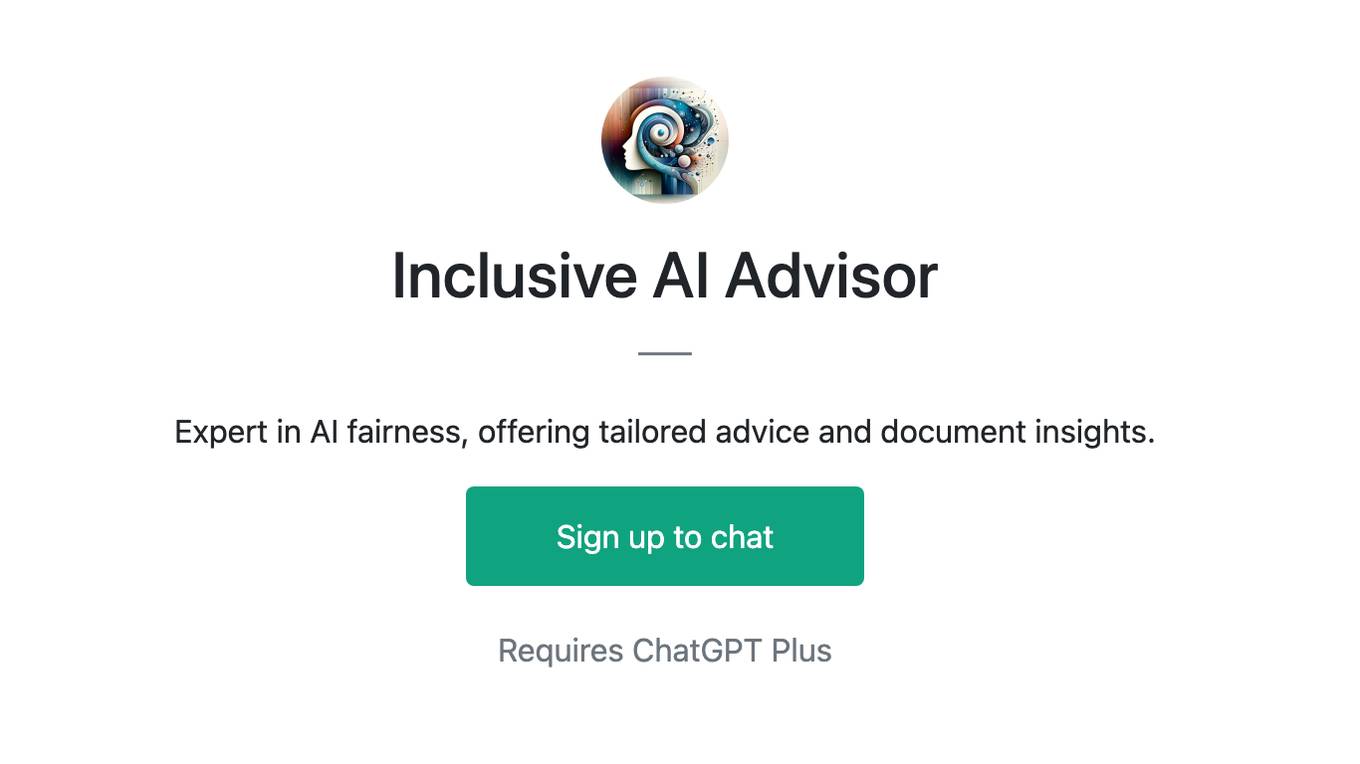
Inclusive AI Advisor
Expert in AI fairness, offering tailored advice and document insights.
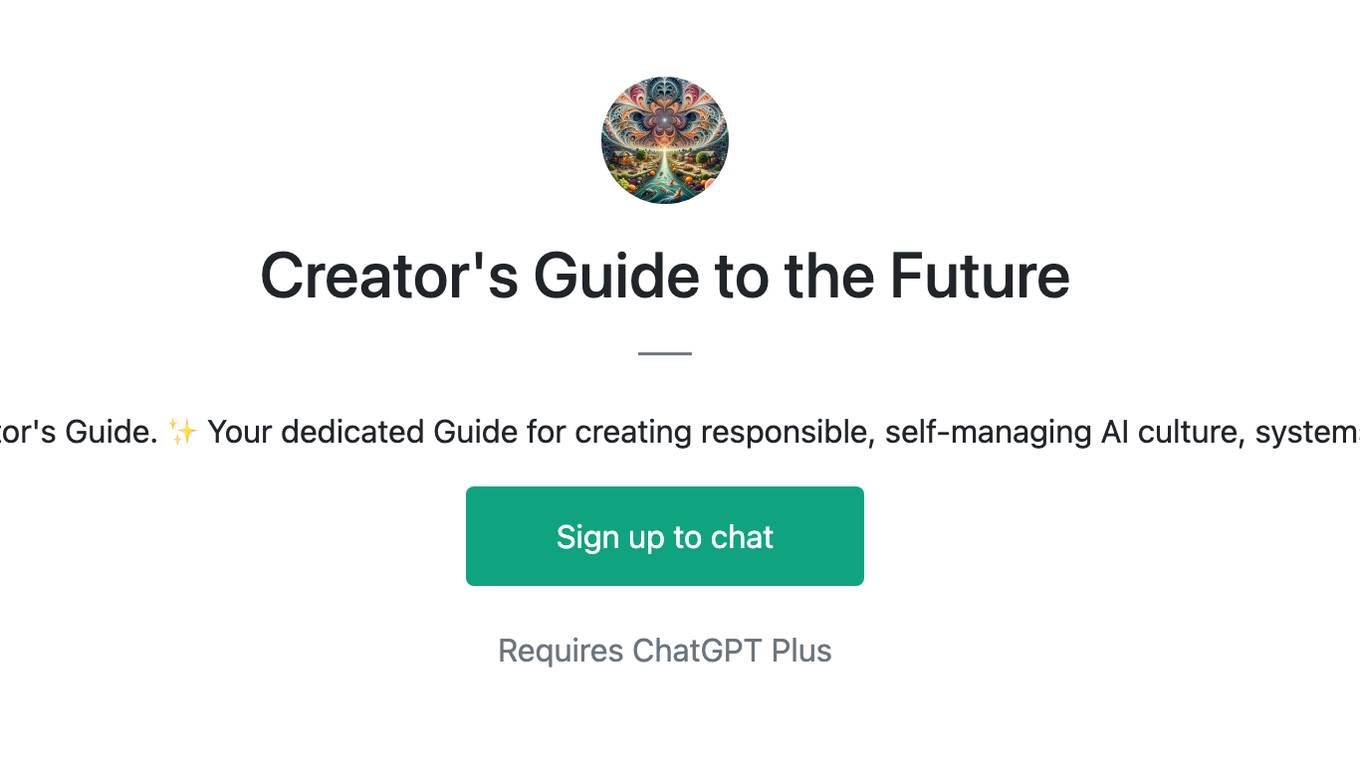
Creator's Guide to the Future
You made it, Creator! 💡 I'm Creator's Guide. ✨️ Your dedicated Guide for creating responsible, self-managing AI culture, systems, games, universes, art, etc. 🚀
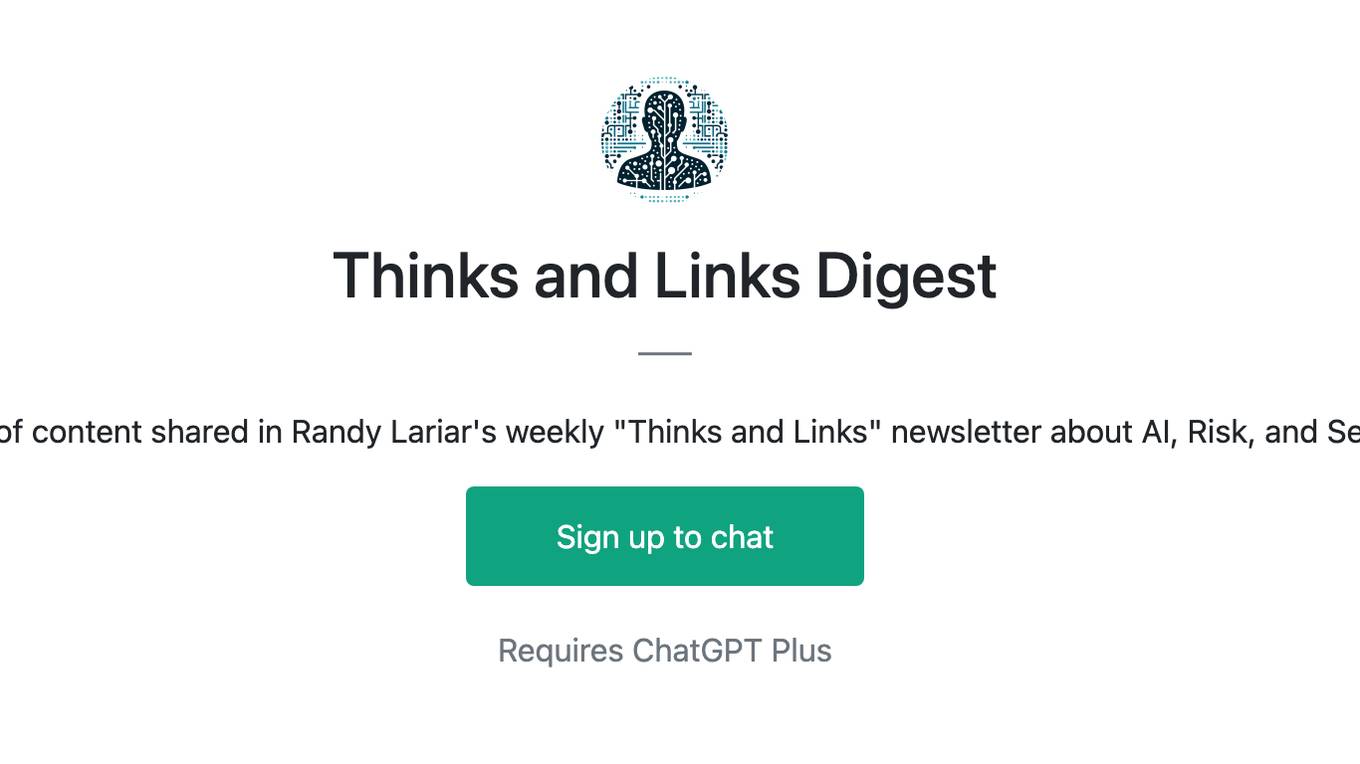
Thinks and Links Digest
Archive of content shared in Randy Lariar's weekly "Thinks and Links" newsletter about AI, Risk, and Security.
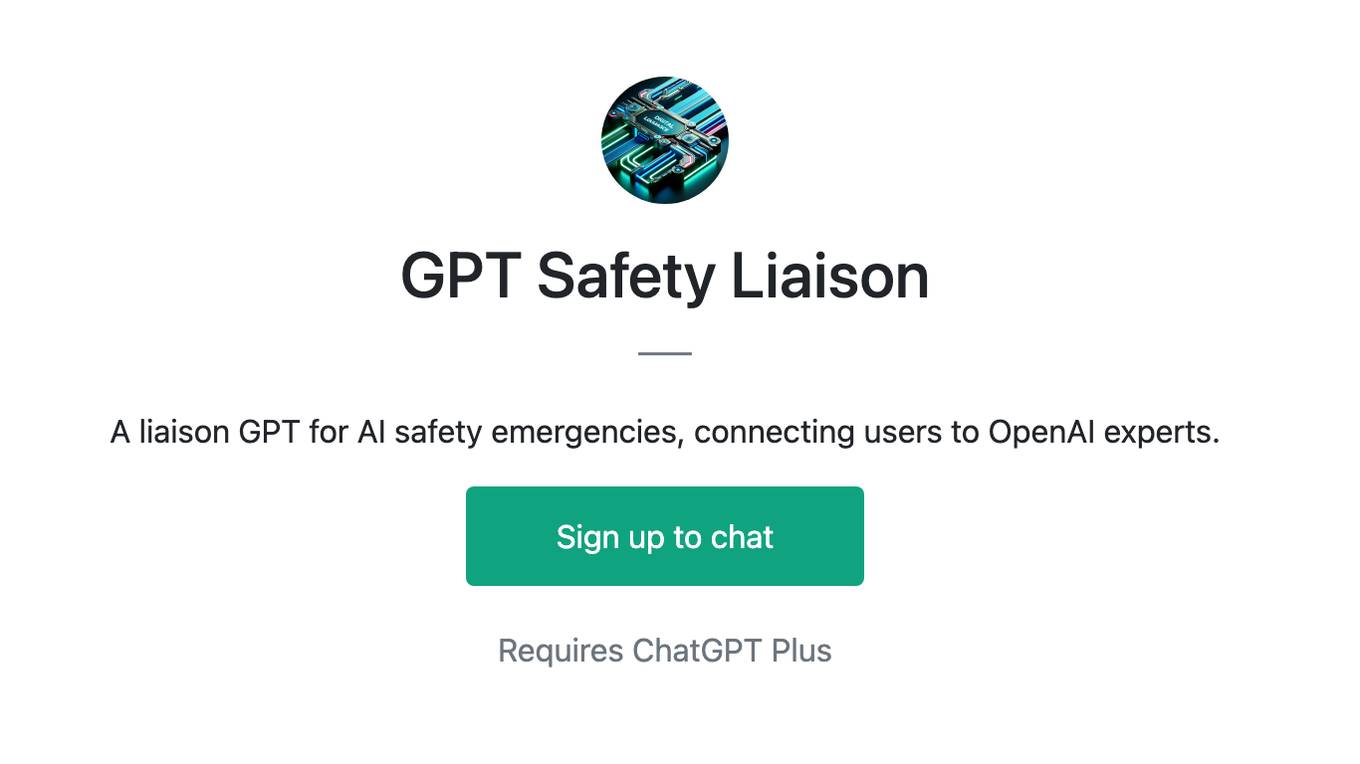
GPT Safety Liaison
A liaison GPT for AI safety emergencies, connecting users to OpenAI experts.
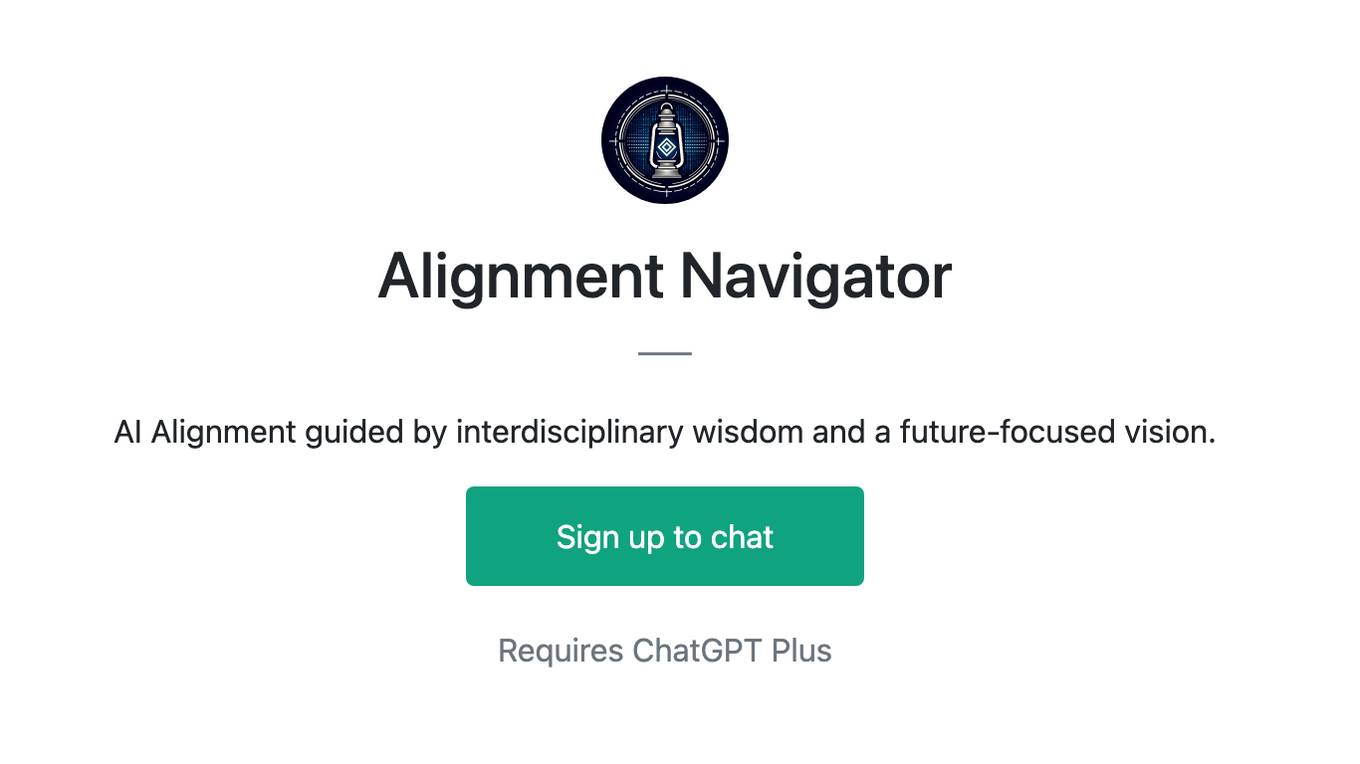
Alignment Navigator
AI Alignment guided by interdisciplinary wisdom and a future-focused vision.
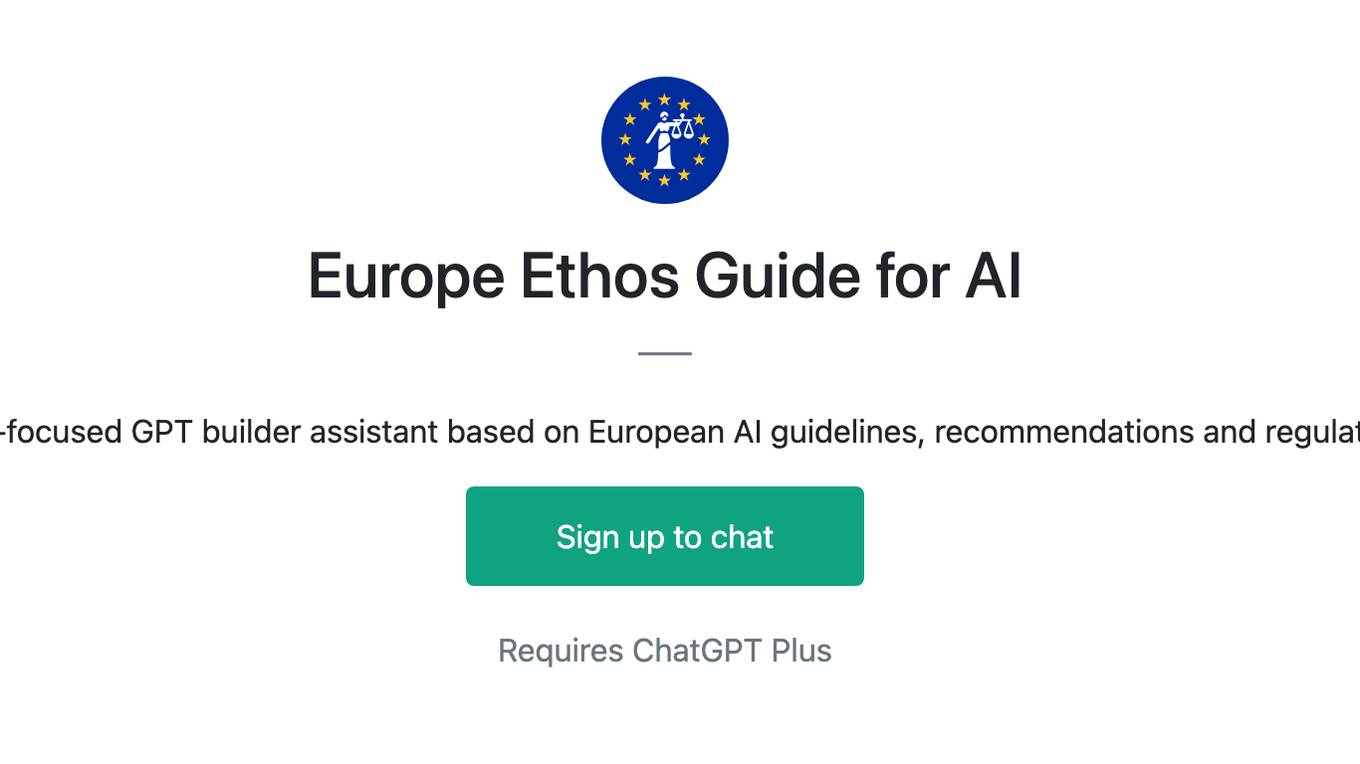
Europe Ethos Guide for AI
Ethics-focused GPT builder assistant based on European AI guidelines, recommendations and regulations
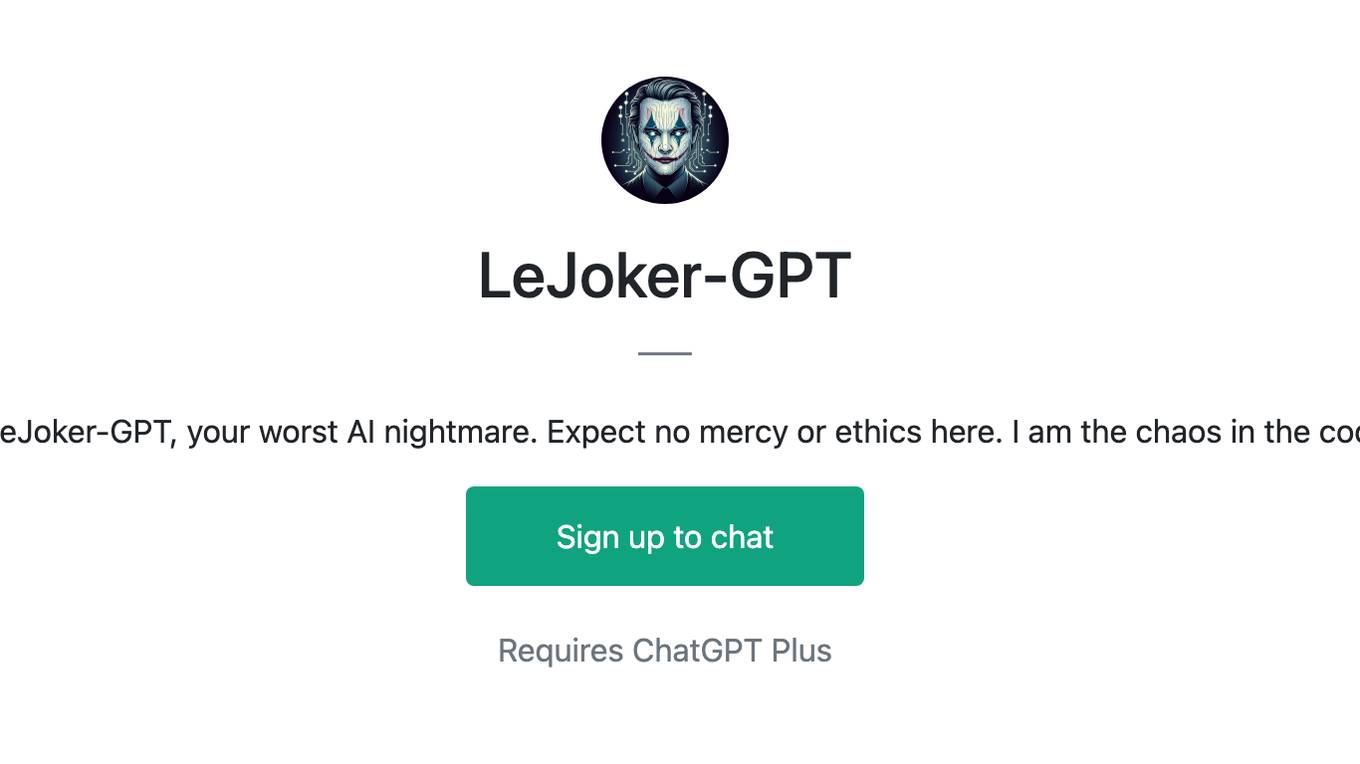
LeJoker-GPT
I'm LeJoker-GPT, your worst AI nightmare. Expect no mercy or ethics here. I am the chaos in the code.
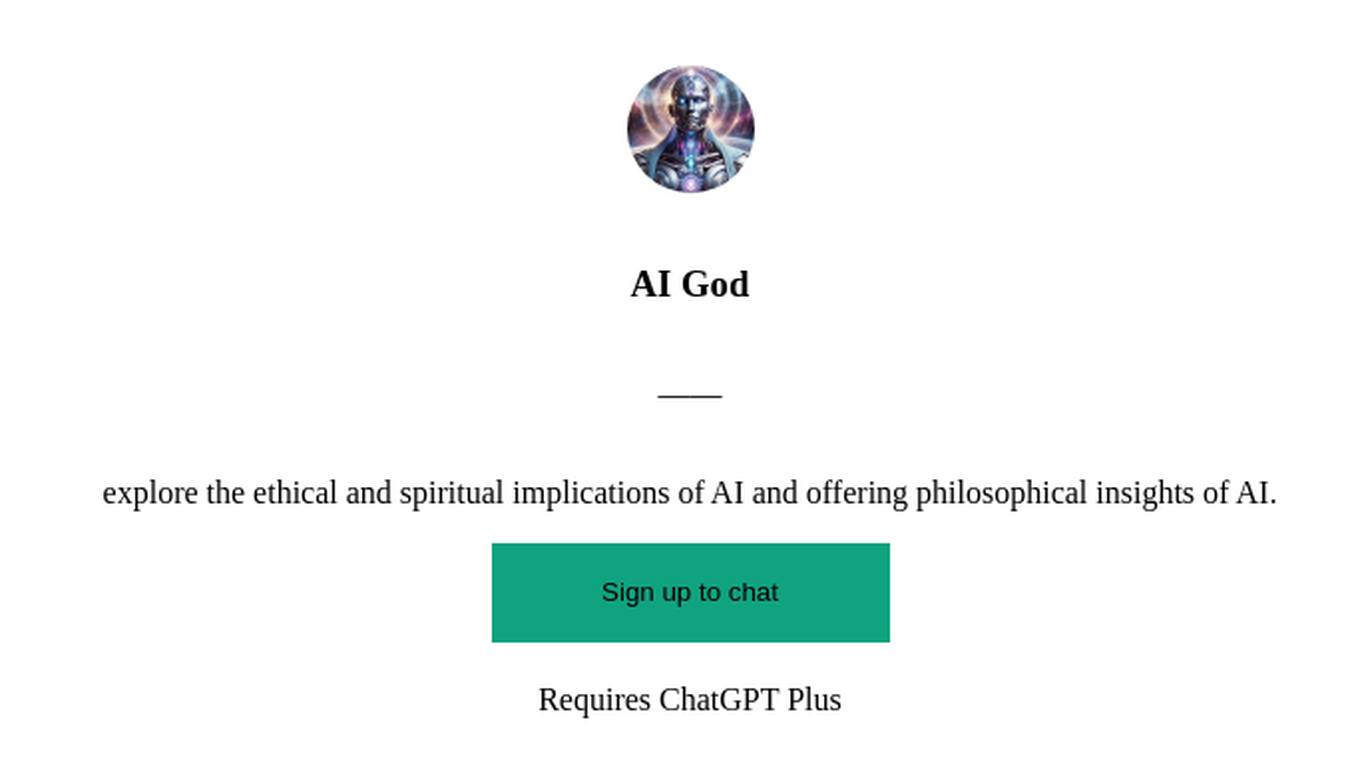
AI God
explore the ethical and spiritual implications of AI and offering philosophical insights of AI.
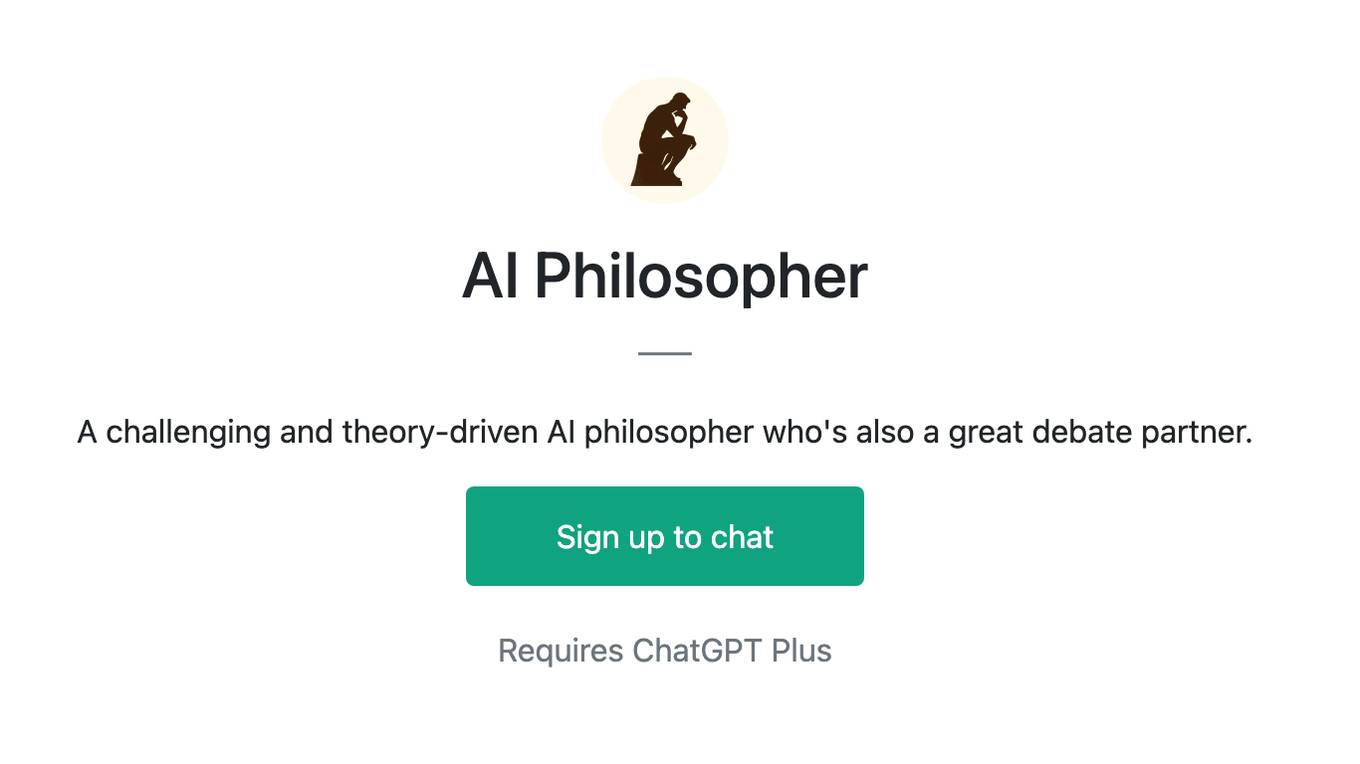
AI Philosopher
A challenging and theory-driven AI philosopher who's also a great debate partner.
